

The Savant Class: Expanded
The Savant is an Intelligence-based, non-magical class that focuses on gathering information and supporting their allies. Provided here are a multitude of additional Savant options:
Personality & Quirks. Use these roleplaying tables to randomly determine your Savant's quirks and personality, take what you like, or use the options here for inspiration
Scholarly Feats. It is no secret that Intelligence is the ability score with the least useful and synergistic options for Feats. The Feats presented here look to solve that problem!
Magic Items. Enhance your loot with a variety of magic items of all rarities designed specifically for the Savant.
Additional Academic Disciplines. Included below are six additional Disciplines for Savants to choose from: Culinarian, Mentor, Orator, Philosopher, Rune Scribe, and Virtuoso!
Additional Scholarly Pursuits. Finally, included here are a multitude of additional Pursuits for your Savant to master.
Personality & Quirks
Having trouble creating a personality for your Savant, or just looking for inspiration? Choose an Obsession, Eccentricity, and an Irrational Fear from the tables presented here.
Obsessions
In their desire to answer every question, Savants can develop obsessions. These inexplicable questions and phenomena gnaw at a Savant until they find the answers that they seek.
d4
Obsession
1
You discovered a strange script in the margin
of a book. The best scholars cannot identify it.
2
As a child you saw a majestic golden bird fly
across the sky that left a rainbow in its wake.
3
Your father charged you to find the legendary,
and most likely fictional, chalice of Bahamut.
4
You use the word "inconceivable" all the time
even though you aren't exactly sure what it means
Eccentricities
Often, with great intellect and intense mental focus comes some strange habits. A Savant's eccentricities are usually the result of them spending too much time on their field of study.
d6
Eccentricity
1
You assume that every person you talk to cares
about the minutia of your area of expertise.
2
You have a really bad habit of only speaking
in the technical jargon of your field.
3
You don't understand children.
4
When someone doesn't understand something
you just haven't explained it enough times.
5
You take diligent notes on everything
even when it isn't socially appropriate.
6
You are so dedicated to your field of study that
you find yourself explaining things to your foes.
Good Luck Charms
Often, despite their intellect, Savants develop attachments to mundane charms, objects, or clothing they perceive as lucky.
d6
Lucky Trinket
1
You refuse to place your faith in a single deity
so you carry a multitude of holy symbols.
2
Your father was a farmer who paid for your
education. You wear his hat in his memory.
3
Despite its ineffectiveness, you carry a
whip to impress and intimidate others.
4
You carry a scroll of insane ramblings. One
day you will figure out its meaning.
5
You wear a pair of crystal spectacles
even though you have perfect vision.
6
You never leave home without a copy of
your mentor's thesis on owlbear anatomy.





Irrational Fears
Despite their impressive minds, Savants tend to develop fears that anyone with common sense would find totally irrational.
d6
Irrational Fear
1
You are convinced you contracted a minor form
of lycanthropy from a dog that bit you as a child.
2
You will do literally anything to
avoid interacting with fire magic.
3
You always make sure to sleep with a silver
coin in your hand to ward off night hags.
4
You hate snakes and snake-like creatures.
5
You are so afraid of undead that the sight
of them causes you to vomit.
6
You give out code words to your allies so
they can prove they aren't doppelgangers.
Scholarly Feats
If your group uses the optional rule for Feats, the following Feats are available alongside those in the Player's Handbook:
Classical Artist
Your great intellect has allowed you to master what many would consider the fine arts. You gain the following benefits:
- Increase your Intelligence score by 1, to a maximum of 20.
- You gain proficiency with both mason's tools and painter's supplies. Whenever you make an ability check with either tool, you can treat a roll of 9 or lower on the d20 as a 10.
- You can use mason's tools or painter's supplies and the appropriate materials to create a work of fine art worth
50 gp for each 8-hour workday you spend working on it.
- You have advantage on checks to assess the value of art.
Helpful Insights
You always seem to have helpful advice for
any situation. You gain the benefits below:
- You increase your Intelligence or Wisdom
score by 1, up to a maximum of 20.
- You can take the Help action as a bonus
action on each of your turns.
- When you use a Help action to give
advantage on an ability check with
a skill or tool you are proficient in,
the target can treat a result of 7
or lower on the d20 as an 8.
Lifelong Learner
You have made a vow to never stop learning, no matter how old or educated you become. You gain the benefits from the table below that correspond to your Intelligence modifier and lower. If your Intelligence modifier increases, the benefits you gain from this Feat also increase with your modifier:
Modifier
Benefit
+1
You learn to speak, read, and write one
additional language of your choice.
+2
You gain proficiency with one set
of artisan's tools of your choice.
+3
You gain proficiency in one skill of your choice.
+4
For one skill proficiency of your choice, you
treat a roll of 7 or lower on the d20 as an 8.
+5
Whenever you are forced to make a Wisdom
saving throw, you can choose to make an
Intelligence saving throw instead.
Mental Acuity
Your mind is a wonderful thing, capable of bursts of insight and mental fortitude. You gain the following benefits:
- Increase your Intelligence score by 1, to a maximum of 20.
- You gain proficiency in two of the following skills: Arcana, History, Investigation, Medicine, Nature, or Religion.
- Choose any two skills from the list above. Whenever you make an ability check with either of the chosen skills you can treat a roll of 7 or lower on the d20 as an 8.
Scholar of Lore
You have spent time learning everything there is to know about a specific area of study. You gain the following benefits:
- Increase your Intelligence score by 1, to a maximum of 20.
- You master a Scholarly Pursuit of your choice from those available to the Savant. If the Pursuit has a Savant level prerequisite, you can learn it if your total level meets or exceeds the prerequisite level for that Scholarly Pursuit.
- If the Scholarly Pursuit requires that you roll an Intellect Die, you roll a d4 unless
your Intellect Die
is higher.
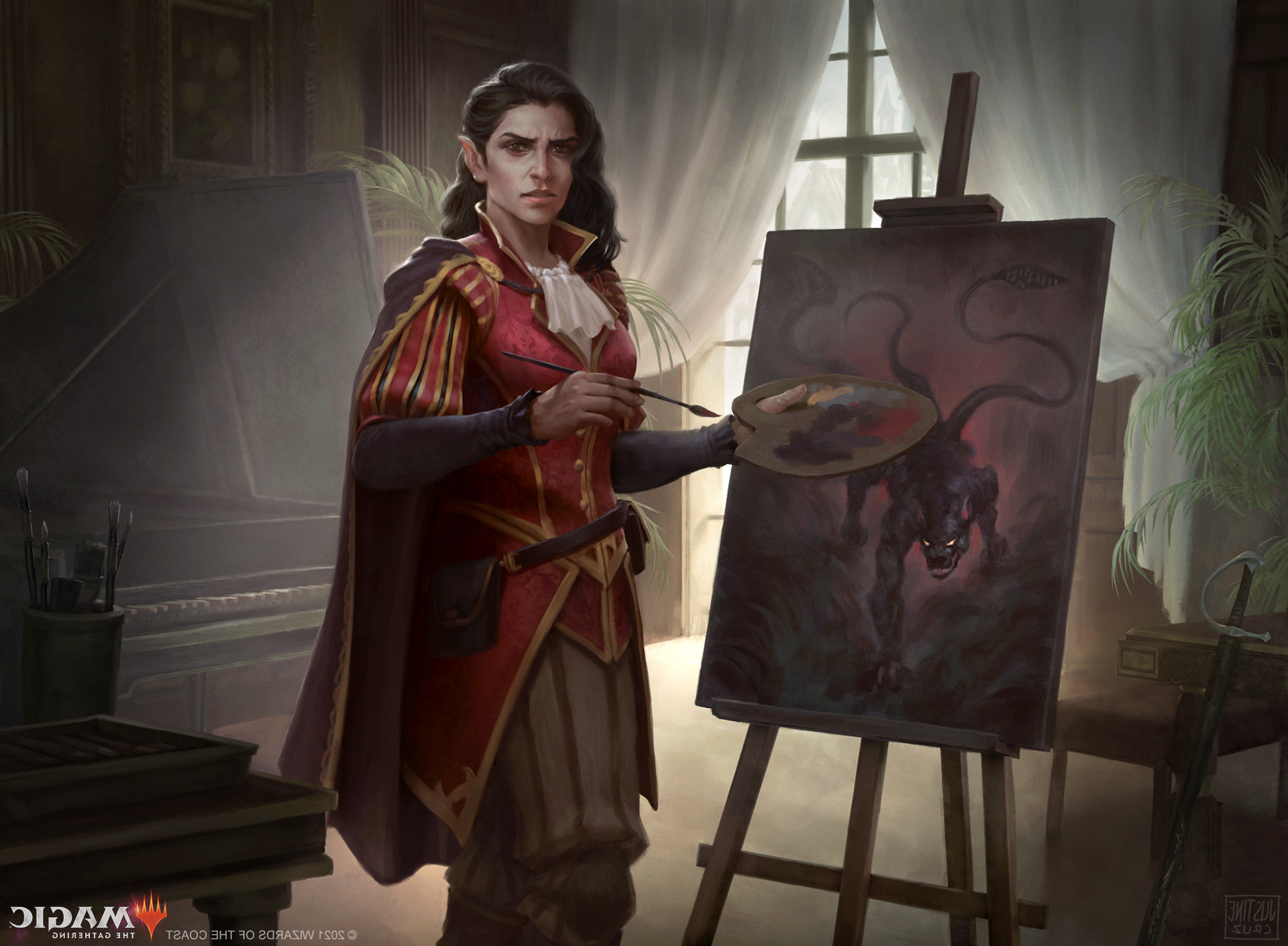



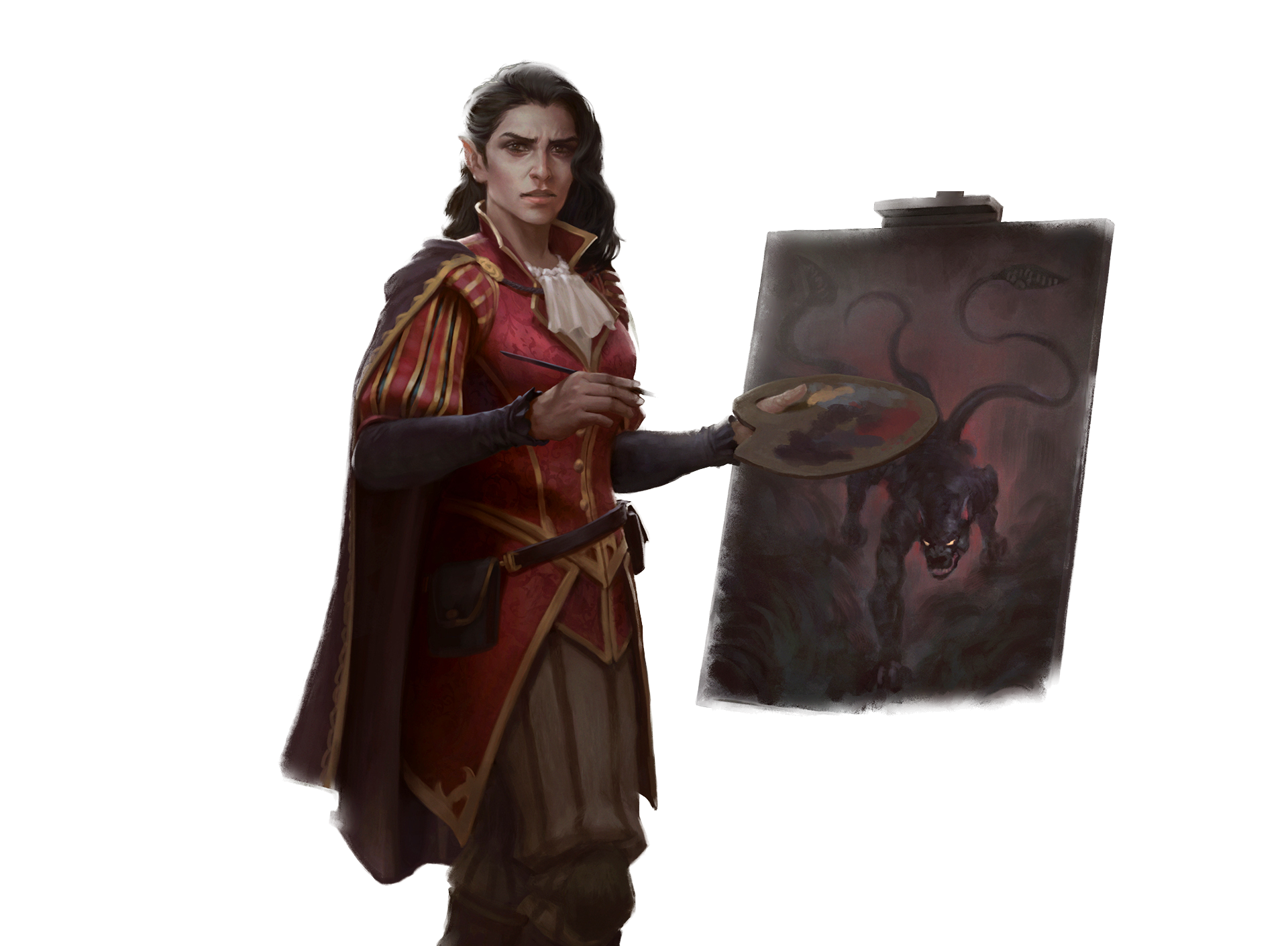
Magic Items
Consider adding the following scholarly magic items to your game, particularly if one of your players is playing a Savant.
Blade of the Scribe
Weapon (rapier), rare (requires attunement by a Savant)
The handle of this elegant rapier is fashioned from silver and steel, and the hollow blade is filled with ink. It bears an Elvish inscription that, when translated, reads "The pen is mightier than the sword, but this is mightier still". You gain a +1 bonus to both attack and damage rolls with this magic weapon.
This magic rapier has 4 Charges. When you hit a target with this weapon, you can expend 1 Charge to release a blast of ink. The target must succeed on a DC 15 Dexterity saving throw or be blinded for 1 minute. This effect ends early if the creature uses its action to wipe the ink from its eyes.
This magic rapier regains 1d4 Charges daily, at dawn.
Doctoral Robes
Wondrous item, legendary (requires attunement by a Savant)
These luxurious robes were fashioned by a long-forgotten empire for the headmaster of an academy of higher learning.
While attuned to the robes you gain the following benefits:
- So long as you are not wearing any armor, your Armor Class is equal to 15 + your Intelligence modifier.
- When you are forced to make a saving throw you gain a bonus to your roll equal to your Intelligence modifier.
- When another creature that can hear you within 30 feet makes an ability check, you can use your reaction to add
your Intelligence modifier to the result of its roll.
Living Quill
Wondrous item, common
This fanciful quill looks to be made from the feather
of a bird of mysterious origin. As an action, you can
speak the Quill's command word and touch the Quill
to a piece of paper or parchment. As long as the Quill
can hear you, it transcribes your words exactly. The
Quill transcribes for 1 hour, but it stops sooner if you
speak its command word again.
Monocle of the Linguist
Wondrous item, uncommon (requires attunement)
This elegantly constructed single eyeglass allows
you to read and understand all writing you view
through it as if it were your native tongue.
Ring of Remembering
Ring, rare (requires attunement)
This bronze ring is etched with hieroglyphics
from a forgotten civilization. It has 3 Charges,
and it regains 1 expended Charge daily, at dawn.
While you wear this ring, you can expend 1
Charge and focus your thoughts on one object or
creature you can see to instantly learn one piece
of significant, forgotten, or secret knowledge
about it, so long as such information exists.
Staff of the Headmaster
Staff, very rare (requires attunement by a Savant)
This staff was once a symbol of the headmaster at an
imperial academy. The staff can be wielded as a magic
quarterstaff that grants a +2 bonus to attack and damage
rolls made with it. When holding it, you have a +2 bonus to any ability checks that use your Intelligence or Wisdom.
Moreover, you can use an action to plunge this staff into the ground, producing the effect of private sanctum within a 30-foot radius of that point. The area within the spell appears as an ornate study in addition to the normal effects of the spell.
Once you use the staff to cast private sanctum in this way, the staff cannot do so again until the following dawn.
Tome of Everlasting Genius
Wondrous item, very rare (requires attunement by a Savant)
This elegantly made ageless tome has been passed down by generations of geniuses, each adding more information to its pages. This tome contains 1d4 +1 entries from those listed below. You can roll randomly, or the DM can choose them.
For each entry in the tome, you gain proficiency in the skill that corresponds with the genius who wrote the entry, and an additional +5 bonus to any checks you make with that skill.
Genius (Proficiency)
Genius (Proficiency)
Actor (Performance)
Psychologist (Insight)
Astronomer (Nature)
Surgeon (Medicine)
Cultist (Deception)
Researcher (Investigation)
Linguist (Persuasion)
Ritualist (Arcana)
Magistrate (History)
Theologian (Religion)
Once you are attuned to this tome for a year and a day, you can add your own entry into the tome detailing your area of expertise, choosing one skill that you are proficient in to add.
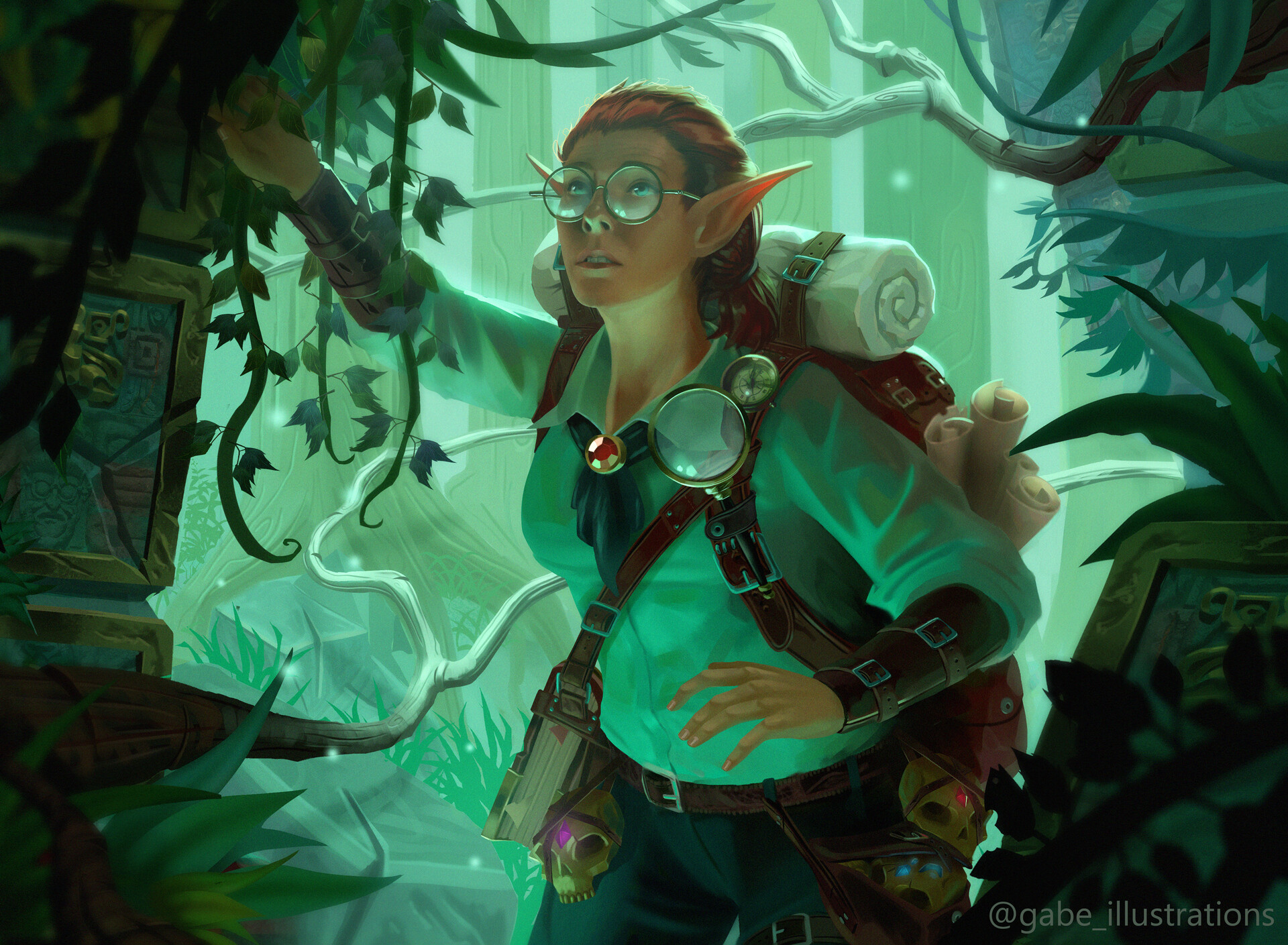




Additional Disciplines
At 3rd level, a Savant gains the Academic Discipline feature. The following Academic Disciplines are available to Savants, along with those presented with the base Savant Class:
Culinarian
Philosopher
Mentor
Rune Scribe
Orator
Virtuoso
Culinarian
The Savants known as Culinarians put their great intellects
to work in the science of food and drink. Ever the adventurer, they leave their kitchens behind, venturing out into the world in a lifelong search for new wondrous and exotic ingredients. What strange and exciting recipes will you come to discover?
Student of Flavor
3rd-level Culinarian Discipline feature
You gain proficiency in Nature and cook's utensils. Whenever you make a check with either of these proficiencies you gain a bonus to your roll equal to one roll of your Intellect Die. If you are already proficient in Nature you gain proficiency in another skill from the Savant skill list in its place.
In addition, so long as you have access to cook’s utensils and edible ingredients, any creature that expends a Hit Die
to regain hit points during a short rest with you also regains additional hit points equal to one roll of your Intellect Die.
Culinarian's Cook Book
3rd-level Culinarian Discipline feature
You are compiling a Cook Book which contains the
exotic Recipes you discover during your adventures:
Recipes Known. You know two Recipes of your
choice from the list at the end of this Discipline.
Adding a Recipe. As an action, you can harvest
a Sample from a creature that died within the last
minute. Before the end of your next long rest, you
can spend 1 hour, which can be during a short or
long rest, using cook's utensils and the Sample to
add the corresponding Recipe that corresponds
to the Sample's creature type to your Cook Book.
Preparing a Morsel. At the end of each short or
long rest, you prepare a number of Morsels equal to
your Intelligence modifier. Each Morsel you prepare has
the properties of one Recipe from your Cook Book.
You don't need samples from a creature corresponding to
a Recipe to prepare a Morsel with that Recipe. Any Morsels you prepare lose their potency at the end of the next short
or long rest as they become inedible and bland.
Serving Morsels. As an action, any creature can eat a Morsel, or feed it to a willing creature within its reach. A creature that eats a Morsel gains the benefits detailed in
the Recipe description. A creature can only benefit from
one Morsel at a time, and eating another Morsel instantly
ends any previous Morsel benefits.
Replacing a Cook Book. If your Cook Book is lost or destroyed, you can spend 1 hour adding each of your old Recipes to a new Cook Book from memory. You do not
need to rediscover any Recipes that were lost.
Cut Above
6th-level Culinarian Discipline feature
As an action, you can touch one of your Morsels with cook's utensils and change it to a Morsel of another Recipe.
Also, when you use your action to eat or feed a Morsel to a creature, you can make one weapon attack as a bonus action.
Improved Recipes
10th-level Culinarian Discipline feature
Your Recipes invigorate your allies along with their normal benefits. A creature that eats one of your Morsels also gains temporary hit points equal to your Savant level.
Master Culinarian
15th-level Culinarian Discipline feature
You are a master monster chef and can cook with anything, anywhere. Over the course of 1 hour, which can be during a short or long rest, you can use cook's utensils and any foods to prepare a monstrous feast that can feed yourself and a number of other creatures equal to your Savant level.
If a creature spends 10 minutes eating its
meal, it is instantly cured of any poisons,
diseases, or any other hostile condition
that is effecting it, and for 24 hours, it
is immune to both the frightened and
poisoned conditions, and it adds one
roll of your Intellect Die to any ability
check or saving throw it makes that
uses its Wisdom or Constitution.
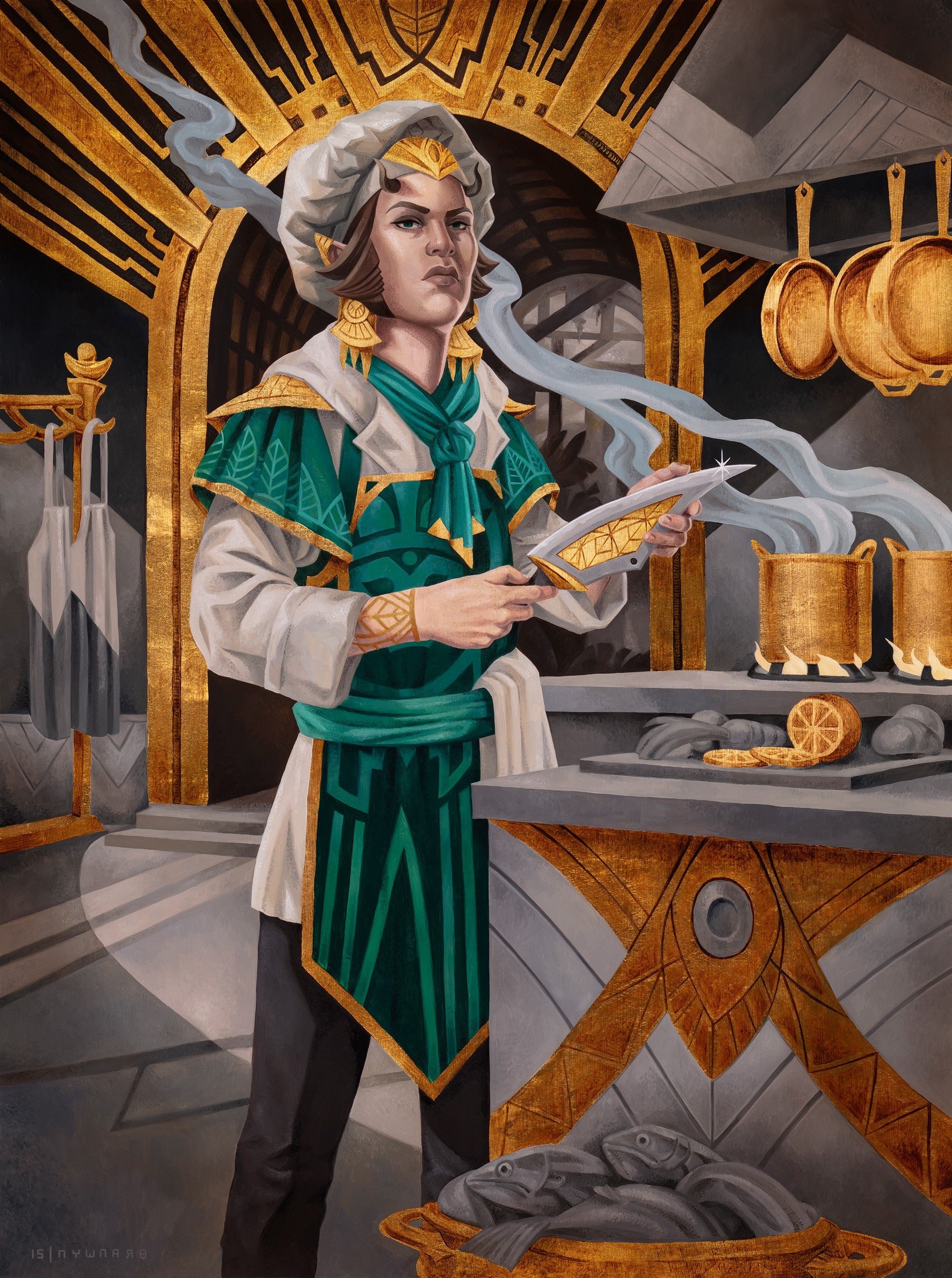







Culinarian Creature Recipes
The following Recipes are available for Culinarian Savants to learn. To learn a Recipe, you must use a sample that matches the creature type listed. If a Recipe has a prerequisite Savant level, you can learn as soon as you meet the level prerequisite.
Invigorating Morsel
Sample: any Beast without a flying or swimming speed
The creature that eats this Morsel regains hit points equal
to one roll of your Intellect Die + your Intelligence modifier.
Limbering Morsel
Sample: any Beast with a flying speed
For 1 hour, the creature gains a bonus to its initiative rolls equal to your Intelligence modifier (minimum of +1), and its walking speed increases by 10 feet.
Monstrous Morsel
Sample: any Monstrosity of CR 1 or higher
For 1 hour, the creature gains the "Change Appearance"
or "Natural Weapons" benefit from the alter self spell.
Subterranean Morsel
Sample: any Beast with a burrowing speed
For 1 hour, the creature gains darkvision out to 60 feet. If a creature already has darkvision, its radius grows by 30 feet.
Thalassic Morsel
Sample: any Beast with a swimming speed
For 1 hour, the creature gains a swimming speed equal to its walking speed, and it can hold its breath for up to 10 minutes.
Verdant Morsel
Sample: any Plant of CR 1 or higher
The creature is instantly cured of the following conditions: blinded, deafened, paralyzed, petrified, poisoned, a reduction to an ability score, or a reduction to its hit point maximum.
Draconic Morsel
Prerequisite: 6th-level Savant
Sample: any Dragon of CR 1 or higher
For 1 hour, the creature gains resistance to the damage type dealt by the Sample dragon's breath weapon attack.
You can create a unique Recipe in your Cook Book for each different type of Dragon you have harvested a Sample from.
Psionic Morsel
Prerequisite: 6th-level Savant
Sample: any Aberration of CR 1 or higher
For 1 hour, the creature can communicate telepathically with any creature within 30 feet. However, in order to respond to you, a creature must be able to speak at least one language.
Titanic Morsel
Prerequisite: 6th-level Savant
Sample: any Giant of CR 1 or higher
For 1 hour, the creature grows in size to become the size of the Sample giant. While it is enlarged, it must concentrate on this effect as if it were concentrating on a spell. Moreover, the creature gains a bonus to its ability checks and saving throws that use its Strength equal to your Intelligence modifier.
You can create a unique Recipe in your Cook Book for each different Giant you have harvested a Sample from.
Viscous Morsel
Prerequisite: 6th-level Savant
Sample: any Ooze of CR 1 or higher
For 1 hour, when the creature takes acid, lightning, poison,
or slashing damage, it can reduce the damage by an amount equal to your Intelligence modifier (minimum of 1 damage).
Aerial Morsel
Prerequisite: 10th-level Savant
Sample: any Air Elemental of CR 1 or higher
For 1 hour, the creature can take the Dash action as a bonus action on each turn, and it can hold its breath indefinitely.
Aqueous Morsel
Prerequisite: 10th-level Savant
Sample: any Water Elemental of CR 1 or higher
For 1 hour, the creature can breathe both air and water, gains a swimming speed equal to its walking speed, and can use its reaction to turn a critical hit into a normal hit.
Ignan Morsel
Prerequisite: 10th-level Savant
Sample: any Fire Elemental of CR 1 or higher
For 1 hour, the creature gains resistance to fire damage, and it gains immunity to the charmed and frightened conditions.
Terran Morsel
Prerequisite: 10th-level Savant
Sample: any Earth Elemental of CR 1 or higher
For 1 hour, the creature gains tremorsense out to a 15-foot radius, and it gains resistance to nonmagical bludgeoning, piercing, and slashing damage.
Celestial Morsel
Prerequisite: 15th-level Savant
Sample: any Celestial of CR 1 or higher
For 1 hour, the creature manifests a pair of ethereal angelic wings which grant it a flying speed equal to its walking speed.
Infernal Morsel
Prerequisite: 15th-level Savant
Sample: any Fiend of CR 1 or higher
For 1 hour, the creature has advantage on any saving throw
it is forced to make to resist a spell and other magical effect.
Sylvan Morsel
Prerequisite: 15th-level Savant
Sample: any Fey of CR 1 or higher
For 1 hour, the creature can use a bonus action on each turn to teleport up to 30 feet to an unoccupied space it can see.
Creating your own Recipes
Part of the genius of a Culinarian is the creation of custom signature Recipes. If you have an idea for a Recipe based on a creature type that isn't included here, work with your DM to design a suitable effect based on the abilities of a creature of that type.
Whatever Recipe you design, its effects should last for 1 hour and should be equal in power to the other available Recipes that a Culinarian can add to their Cook Book at that prerequisite level.

Mentor
While most Savants use their vast intellect in pursuit of their chosen discipline, those known as Mentors use their intellect in the service of others. Most often, Mentors are past their prime and are looking to pass their knowledge on to the next generation. Whether you are an elder in your community, a retired adventurer, or just someone with knowledge beyond your years, you are ready to gently guide those around you.
Student of Life
3rd-level Mentor Discipline feature
You gain proficiency in both History and Insight. Whenever you make a check with either of these proficiencies you gain a bonus to your roll equal to one roll of your Intellect Die. If you are already proficient in either skill you gain proficiency in another skill from the Savant skill list in its place.
Your knowledge of life also grants you the benefits below:
- You master the Instruction Scholarly Pursuit. If you have already mastered this Scholarly Pursuit, you can instead master your choice of Perfect Recall or Quick Study.
- Whenever you use Instruction you can teach the chosen language, skill, tool, or weapon to a number of creatures equal to your Intelligence modifier, instead of just one.
- When you use Potent Observation or Wondrous Insight and you roll a 1, you can re-roll your Intellect Die. You must use this new roll, even if you roll another 1.
Astute Advice
3rd-level Mentor Discipline feature
You know just what to say to help your allies learn from their failures. Whenever another creature that can hear you within 30 feet misses with an attack roll, or fails an ability check or saving throw, you can use a reaction to have it re-roll the d20, adding one roll of your Intellect Die to the result.
You can use this reaction a number of times equal to your Intelligence modifier (a minimum of once), and you regain all
expended uses when you finish a long rest.
Adept Assistance
6th-level Mentor Discipline feature
You can target two creatures, instead of just one, whenever you use an action on your turn to take the Help action.
Soothing Presence
6th-level Mentor Discipline feature
Your calming presence allows others to truly relax. Creatures that complete a short rest with you have advantage on any Hit Die rolls they make to regain their hit points. They also gain a number of temporary hit points equal to your Savant level.
Mystical Intuition
10th-level Mentor Discipline feature
Your life experience and extraordinary intuition can give you mystical insights into the world around you. You can spend 1 minute meditating on a question you have, or a question that another creature has asked you. At the end of the meditation, you mystically intuit the answer to the question as if you had cast the commune spell. However, unlike commune, you can only intuit an answer if it is known to another mortal being.
Once you gain an answer to a question using this feature, you must finish a long rest before you can do so again.
Finally, you regain all expended uses of your Astute Advice feature whenever you complete a short or long rest.
Master Mentor
15th-level Mentor Discipline feature
Your advice is legendary and is desired throughout the land. Creatures of your choice within 15 feet of you gain a bonus to all ability checks and saving throws equal to your Intelligence modifier (minimum of +1), so long as they can hear you.
Moreover, whenever you target an allied creature with the Help action or Astute Advice, you can grant it temporary hit points equal to your Intelligence modifier (minimum of 1).
Lastly, you regain the use of your Mystical Intuition feature whenever you complete a short or long rest.
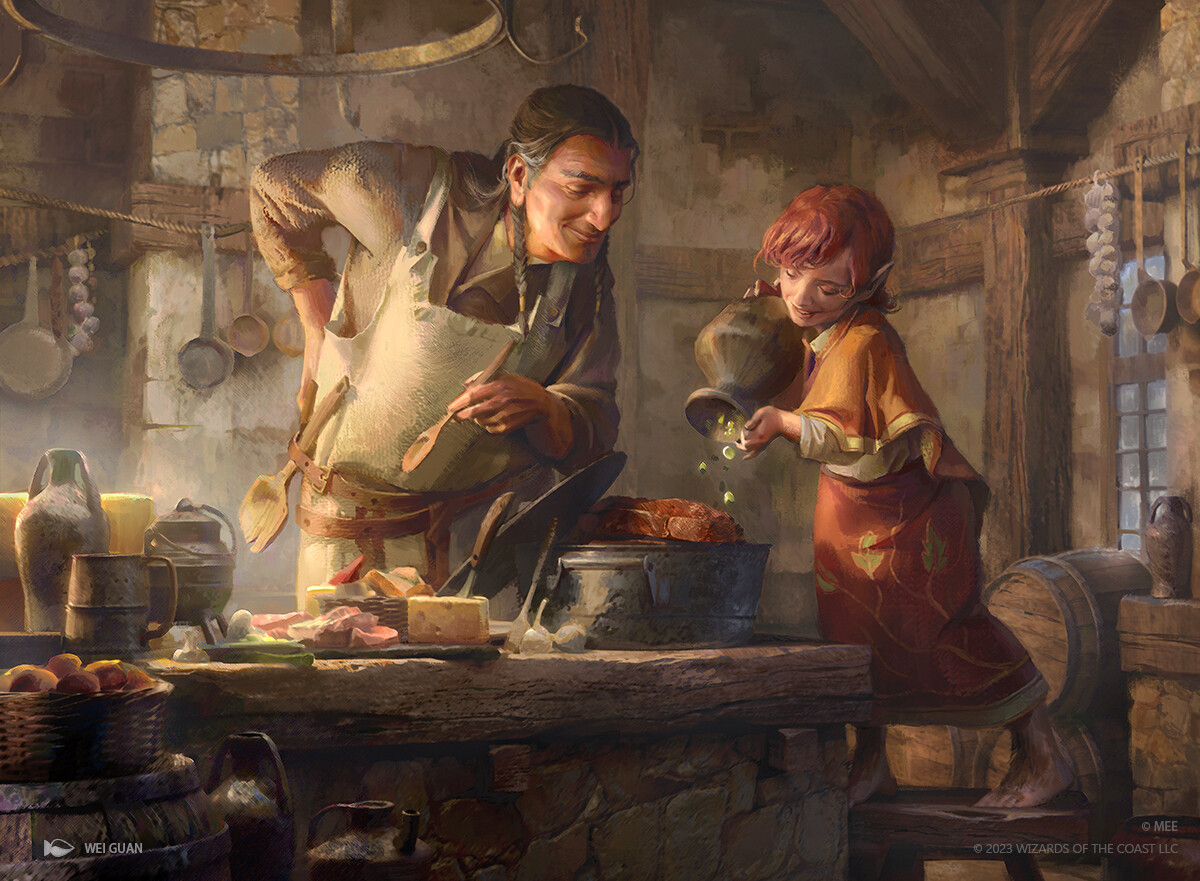


Orator
Orators are true masters of linguistics and the
spoken word. These wordsmiths use nothing but
their wit and mastery of rhetoric to rebuff foes and
empower their allies. With utmost confidence, they
stride boldly into hostile situations, confident that
they can win anyone with their eloquence.
Unlike those who use their charm to cajole, Orators
embolden their allies and win over their enemies with nothing but reasonable logic and convincing rhetoric.
Student of Logic
3rd-level Orator Discipline feature
You gain proficiency in both Deception and Persuasion, and whenever you make a check with either proficiency you gain a bonus to your roll equal to one roll of your Intellect Die. If you are already proficient in either skill you gain proficiency in another skill from the Savant skill list in its place.
Your mastery over words grants you the benefits below:
- Whenever you make a Deception or Persuasion check
you can use your Intelligence in place of Charisma.
- You master your choice of the Instruction, Riddles,
or Traditions Scholarly Pursuit, even if you do not
meet the normal level prerequisite for that Pursuit.
- You learn to speak, read, and write a number of extra languages equal to your Intelligence modifier.
Rhetorical Superiority
3rd-level Orator Discipline feature
Your mastery of various languages allows you to inspire,
dominate, and charm with words. You gain the rhetorical
abilities below, which use your Intellect save DC and can
affect any creature that can both hear and understand you.
Convincing Conversation
If you spend at least 1 minute talking with a creature that is not hostile toward you, you can force it to unknowingly make a Wisdom saving throw. On a failed save, it is charmed by you for 1 hour, or until you or your allies do anything harmful to the charmed creature or any of its allies.
You can have only one creature charmed this way at a time. Charming another target ends this effect for other creatures.
Cutting Retort
When a creature you can see within 30 feet makes an attack, you can use your reaction to distract it with a cutting remark. It must succeed on a Wisdom saving throw or subtract one roll of your Intellect Die from the triggering attack roll.
Once a creature succeeds on this Wisdom saving throw,
it is immune to the effects of this ability it for 24 hours.
Invigorating Word
When a creature you can see within 30 feet takes damage from a hostile creature, you can use your reaction to grant it temporary hit points equal to one roll of your Intellect Die.
A creature must have at least 1 hit point remaining after taking damage in order to benefit from this ability.
Uplifting Remark
When another creature you can see within 30 feet makes an Intelligence, Wisdom, or Charisma saving throw, you can use
a reaction to add one roll of your Intellect Die to its roll.
Iron Logic
6th-level Orator Discipline feature
Your masterful grasp of logic allows you to resist all but the strongest mind-altering effects. You have advantage on any saving throw you are forced to make to resist enchantment spells, and you are immune to the charmed condition.
Also, whenever you use Uplifting Remark, the creature
can roll the Intellect Die twice and use the higher result.
Peerless Rhetoric
10th-level Orator Discipline feature
You can bend the masses to your will with your words. If you speak to a group of creatures who can hear and understand you for 1 minute, you can choose to inspire or persuade a number of creatures in that crowd equal to your Savant level, as detailed below. Once you do so, you must finish a short or long rest before you can use this ability on a crowd again.
Inspire. Creatures gain a number of temporary hit points equal to your Savant level, and while the temporary hit points remain, creatures have advantage on saving throws to resist enchantment spells and are immune to being frightened.
Persuade. Creatures must succeed on a Wisdom saving throw against your Intellect save DC or be charmed by you for up to 24 hours as if by the mass suggestion spell.






Master Orator
15th-level Orator Discipline feature
Your absolute mastery over the spoken word allows you to bend all but the strongest creatures to your will. When you force a creature to make a saving throw to resist one of your Rhetorical Superiority abilities or Peerless Rhetoric, it has disadvantage on the roll if both its Intelligence and Wisdom scores are lower than your Intelligence score.
Philosopher
Philosophy is considered by many to be the purest Discipline a Savant can pursue. They expend their genius pondering the deep questions of existence; the purpose of life, the nature of the multiverse, and the relationships between mortal beings and gods. Through the study of the multiverse, Philosophers try to perfect mortal knowledge of the true nature of reality.
Student of Thought
3rd-level Philosopher Discipline feature
You gain proficiency in both Arcana and Religion. Whenever you make a check with either of these proficiencies you gain a bonus to your roll equal to one roll of your Intellect Die. If you are already proficient in either skill you gain proficiency in another skill from the Savant skill list in its place.
Your grasp of reality also grants you the following benefits:
- Whenever you make an ability check to communicate with a creature that is not native to the material plane you gain a bonus to your roll equal to one roll of your Intellect Die.
- You can also learn the following characteristics about your Focus with Adroit Analysis: its alignment, its native plane of existence, or its spellcasting ability (if it has one) and the level of the highest spell that it can cast.
- You learn to speak, read, and write either
Celestial, Infernal,
Primordial, or
Sylvan.
Words of Power
3rd-level Philosopher Discipline feature
In your study, you have learned to speak the Words of Power below that were used in shaping the multiverse. If your Focus is within 30 feet and it can hear you, you can speak one Word of Power at it, forcing it to make a saving throw against your Intellect save DC, or suffer the Word of Power's effects.
Power Word: Confound
Whenever your Focus makes an ability check or attack roll, you can use your reaction to force it to make an Intelligence saving throw. On a failure, it takes psychic damage equal to one roll of your Intellect Die and it suffers disadvantage on the triggering ability check or attack roll.
Power Word: Disorient
As an action, you force your Focus to make a Wisdom saving throw. On a failure, it takes psychic damage equal to one roll of your Intellect Die, and has disadvantage on the first saving throw it makes before the beginning of your next turn.
Power Word: Dread
As an action, you force your Focus to make a Wisdom saving throw. On a failure, it takes psychic damage equal to one roll of your Intellect Die and it is frightened of another creature it can see (your choice) until the beginning of your next turn.
Power Word: Halt
When your Focus attempts to move, you can use a reaction to force it to make a Strength saving throw. On a failure, it takes psychic damage equal to one roll of your Intellect Die and its speed is reduced to zero until the beginning of your next turn.
Unwavering Focus
6th-level Philosopher Discipline feature
Your resolute sense of purpose bolsters your Words of Power. You can speak your Words of Power at any creature that can hear you within 30 feet, instead of just your current Focus.
Moreover, if you speak a Word of Power at your Focus, it takes additional psychic damage equal to one roll of your
Intellect Die on a failed save, and half as much psychic
damage on a successful save.
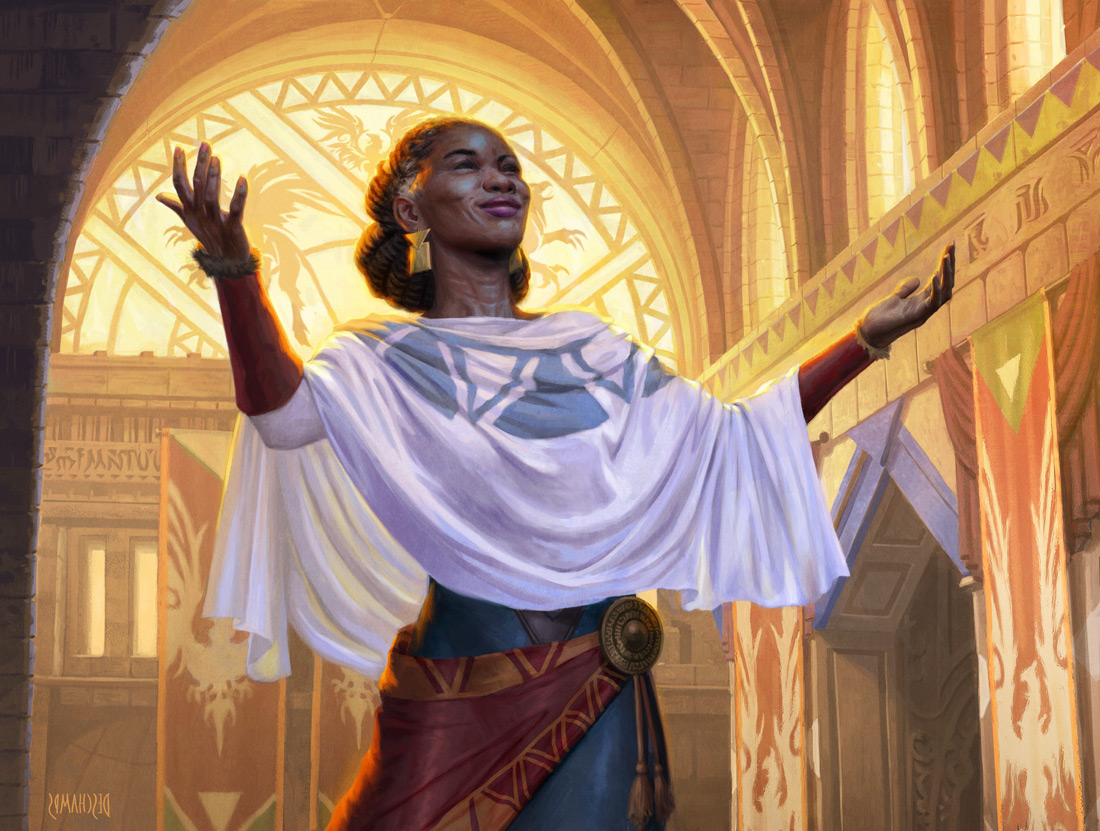



Supreme Understanding
10th-level Philosopher Discipline feature
Your ever-deepening understanding of the nature of reality grants you knowledge of more potent Words of Power. You learn the Words of Power listed below, and you can speak each of them once between each short or long rest.
Power Word: Enfeeble
As an action, you force your Focus to make an Intelligence saving throw. On a failed save, it is stunned for 1 minute.
It can choose to repeat this saving throw at the end of each of its turns. On a success, this effect ends, but, on a failure, it takes psychic damage equal to two rolls of your Intellect Die.
Power Word: Shunt
As an action, you can force your Focus to make a Charisma saving throw. On a failed save, it is shunted from the current plane for up to 1 minute. If it is native to the current plane, it is banished to a harmless demiplane. If it is not native to the current plane, it is banished to its native plane of existence.
It can choose to repeat this saving throw at the end of each of its turns. On a success, it returns to the space that it was shunted from, or the closest unoccupied space. On a failure,
it takes psychic damage equal to two
rolls of your Intellect Die.
Master Philosopher
15th-level Philosopher Discipline feature
Your willpower rivals that of powerful extraplanar beings. You are always under the effect of protection from evil and good.
Also, whenever a creature takes psychic damage from one of your Words of Power, it takes additional psychic damage equal to your Intelligence modifier (minimum of +1).
Rune Scribe
Legends say that rune magic is the most ancient arcane art to have been mastered by mortals. Savants that dedicate their lives to the study of these Runes are known as Rune Scribes. They learn all they can about these ancient sigils that embody the magic of creation. The magic of runes isn't widely known, and its secrets are jealously guarded by those who master it.
Student of Rune Magic
3rd-level Rune Scribe Discipline feature
You gain proficiency with Arcana and calligrapher's supplies. Whenever you make a check with either proficiency you gain a bonus to the roll equal to one roll of your Intellect Die. If you are already proficient in Arcana you gain proficiency in another skill from the Savant skill list in its place.
You also learn to speak, read, and write two of the following Runic Languages, which are used to inscribe the Runes you learn: Draconic, Druidic, Dwarvish, Giant, or Primordial.
Rune Carving
3rd-level Rune Scribe Discipline feature
You have learned the artful and ancient magic of Runes.
Runes Known. You learn two Runes of your choice
from the list at the end of this Discipline. Some Runes
have a Savant level prerequisite, which you can learn as
soon as you reach that Savant level.
You learn one additional Rune of your choice at
6th, 10th, 15th, and 18th level in this class.
Whenever you gain a level in this class, you
can replace one of the Runes you know with
another Rune of your choice.
Inscribing a Rune. Over the course of 1
hour, you can use your calligrapher's supplies
to inscribe a Rune you know into a weapon, suit
of armor, or an object that you can wear or hold.
A creature that wears or wields a Runic object
gains the benefits of the inscribed Rune.
Each of the Runes you know can only be
inscribed in one object. Inscribing a Rune
again dispels any previous inscriptions.
Invoking Runes. If the creature bearing one of your
Runic objects speaks the language the Rune is inscribed
in, it can Invoke the Rune to gain its benefits.
Once a Rune has been Invoked, it cannot be Invoked
again until the Rune Scribe who inscribed it finishes a long
rest, even if the Rune is inscribed onto a different object.
Runic Casting. You can cast and concentrate on spells
from your Runes, even when you have a Focus. If a Rune
requires a target to make a saving throw, it does so against
your Intellect save DC. If a Rune requires an attack roll, the
the Invoking creature uses its Intelligence as follows:
Runic attack modifier = your proficiency bonus
+ your Intelligence modifier





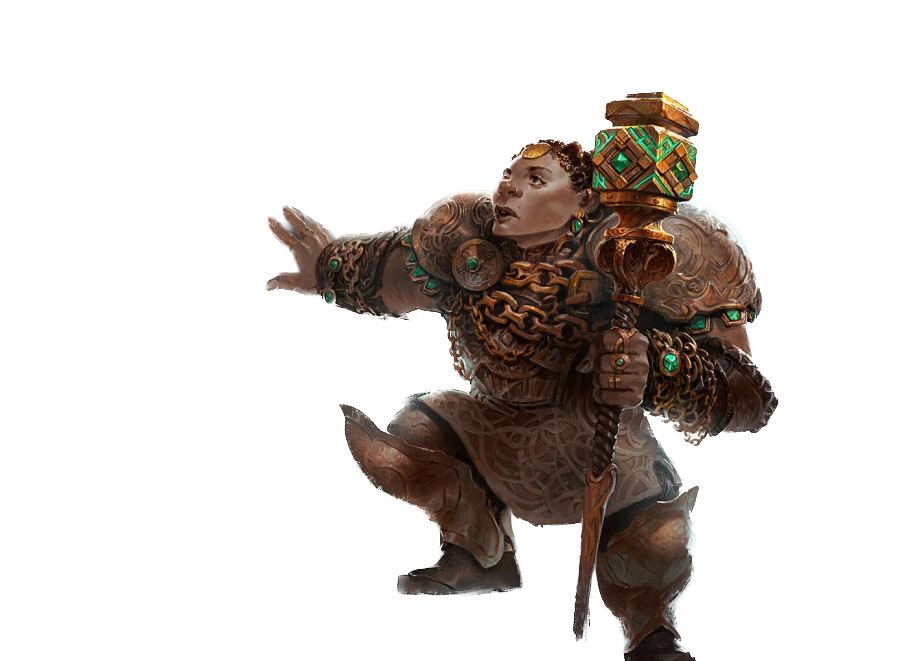


Elder Magicks
6th-level Rune Scribe Discipline feature
The power imbued within your Runes has grown. Your Runic objects count as magical for as long as the Rune is inscribed.
Also, during the course of a short rest, you can perform a short 10-minute ritual to reawaken the magic of a Rune that has already been Invoked for the day, and it can be Invoked one additional time before the end of your next long rest.
Runic Ward
10th-level Rune Scribe Discipline feature
Your Runes offer a measure of protection to those that bear them. If a creature bearing at least one of your Runic objects is forced to make a saving throw to resist the effects of a spell or another magical effect, they gain a bonus to their roll equal to your Intelligence modifier (medium of +1).
Moreover, each time you finish a long rest, you can replace one Rune you know with another Rune of your choice.
Master Rune Scribe
15th-level Rune Scribe Discipline feature
You can draw on the magic of your Runes to protect yourself in times of great need. When you are reduced to 0 hit points but not killed outright, you can draw on the power of a Runic object within 60 feet of you, instantly dispelling the Rune and any of its effects, and you fall to 1 hit point instead of 0.
Runes
Below are the Runes available for a Rune Scribe to learn. If a Rune has a level prerequisite, you can learn that Rune at the same time you meet its prerequisite. Some Runes can only be inscribed in certain objects as detailed in its description.
Each object can only bear the magic of one Rune at a time.
Rune of Enchantment
Item: a bracelet, diadem, necklace, or ring
Creatures will treat the bearer of this Runic object one stage friendlier than normal. For example, an indifferent creature might treat the bearer as a friend, or a hostile creature might treat the bearer indifferently. This special treatment instantly ends if the bearer attacks the creature.
Invoking this Rune. As an action, the bearer can Invoke the Rune to cast either the calm emotions, charm person or command spell, targeting a number of creatures equal to the Rune Scribe's Intelligence modifier (minimum of 1 creature).
Rune of Evocation
Item: a simple or martial melee weapon
When you inscribe the Rune you imbue it with acid, cold, fire, poison, or lighting damage. Whenever the bearer hits with an attack with this Runic weapon, it deals additional damage of the imbued type equal to one roll of your Intellect Die.
Invoking this Rune. When the bearer hits with an attack with this Runic weapon, it can Invoke the Rune to cause the attack to deal additional damage of the imbued damage type equal to three rolls of the Rune Scribe's Intellect Die.
Rune of Illusion
Item: a cloak, robe, or suit of armor
As an action, the bearer of this Runic object can change its physical appearance to match that of a creature it has seen before, so long as it has the same arrangement of limbs as the bearer. The bearer can determine the specifics of these changes, including race, coloration, hair length, sex, height, and weight, but it cannot change its size. This illusion does not affect clothing, equipment, or game statistics.
The illusion can be detected with a successful Intelligence (Investigation) check vs. the Rune Scribe's Intellect save DC.
Invoking this Rune As an action, the bearer of this Runic object can Invoke this Rune to turn invisible for 10 minutes. This invisibility ends if they attack or force a saving throw.
Rune of Necromancy
Item: a belt, ring, or suit of armor
The bearer of this Runic object can use a bonus action to grant itself temporary hit points equal to the Rune Scribe's Intelligence modifier (minimum of 1 temporary hit point).
Invoking this Rune. When the bearer of this Runic object is reduced to 0 hit points, but it is not killed outright, it can Invoke this Rune to fall to 1 hit point instead of 0.
Rune of Abjuration
Prerequisite: 6th level Rune Scribe
Item: a cloak, robe, shield, or suit of armor
Once per turn, the bearer of this Runic object can reduce the damage from a spell or another magical effect by an amount equal the Rune Scribe's Intelligence modifier (minimum of 1).
Invoking this Rune. When a creature within 30 feet of the bearer of this Runic object casts a spell, the bearer can use its reaction to Invoke this Rune and force the creature that cast the spell to make a Constitution saving throw. On a failure, the triggering spell fails and has no effect.



Rune of Conjuration
Prerequisite: 6th-level Savant
Item: a belt, cloak, ring, or suit of armor
As an action, the bearer of this Runic object can expend any amount of its remaining movement speed to instantly teleport to an unoccupied space it can see within that distance.
Invoking this Rune. As an action, the bearer can Invoke the Rune and force two creatures it can see within 60 feet to make a Charisma saving throw, which a creature can choose to fail. If both fail, they instantly switch places.
Rune of Divination
Prerequisite: 10th-level Savant
Item: a wand, staff, robe, or spellcasting focus
The bearer of this Runic object can use it as a spellcasting focus to cast the comprehend languages, detect magic and identify spells as rituals, without the material components.
Invoking this Rune. As an action, the bearer can Invoke the Rune to empower their vision. For 1 hour, the bearer has truesight, sees secret doors and traps hidden by magic, and can see into the Ethereal Plane, all out to a range of 120 feet.
Rune of Transmutation
Prerequisite: 10th-level Savant
Item: a bracelet, diadem, ring, or necklace
The bearer of this Runic object gains its choice of a 30-foot swimming speed, a 30-foot climbing speed, or has its walking speed increased by 10 feet. As a bonus action, the bearer can switch its current benefit for another from the above list.
Invoking this Rune. As an action, the bearer can Invoke this Rune to transform itself into a beast with a CR equal to the Rune Scribe's Savant level or lower, but otherwise using the rules of the polymorph spell. However, unlike polymorph, this transformation does not require concentration.
Virtuoso
Bending their impressive intellect toward the study of music, Virtuosos are known for the impressively complex music they write and perform. These masterful composers know how to manipulate the emotions of their listeners with themes, and, with the right sequence of notes, they can fill a listener with feelings of sorrow, anger, indifference, or absolute adoration.
Student of Music
3rd-level Virtuoso Discipline feature
You gain proficiency in Insight and Performance. Whenever you make a check with either of these proficiencies you gain a bonus to your roll equal to one roll of your Intellect Die. If you are already proficient in either skill you gain proficiency in another skill from the Savant skill list in its place.
Your intuitive understanding of musical composition and performance also grants you the benefits below:
- Whenever you would make a Performance check you can choose to use your Intelligence in place of your Charisma.
- You gain proficiency with three musical instruments.
- If you spend 1 hour practicing with a musical instrument, you are considered proficient with it. However, only one instrument can benefit from this feature at a time.
- Whenever you make an ability check that incorporates a musical instrument that you are proficient with, you can treat a roll of 9 or lower on the d20 as a 10.
Wondrous Theme
3rd-level Virtuoso Discipline feature
You have composed powerful Themes that stir the hearts of any creature that can hear them. As an action, you can begin to play this Theme, which continues until the start of your next turn, unless you choose to end it (no action required).
If you are already playing your Theme, you can use a bonus action to extend its duration until the start of your next turn.
Your Theme can be heard up to 120 feet away, but it only influences creatures within 30 feet that can hear the Theme.
If one of your Theme's effects requires a creature to make
a saving throw, it does so against your Intellect save DC.
While you are performing your Theme, you can use your reaction to alter its sound in the following ways:
Discordant Note
When a creature under the influence of your Theme attacks
another creature you can see, you can use your reaction to subtract one roll of your Intellect Die from its attack roll.
Inspiring Tune
When a creature under the influence of your Theme takes damage from a source you can see, you can use a reaction to reduce the damage it takes by one roll of your Intellect Die.
Uplifting Melody
When a creature under the influence of your Theme makes a saving throw to resist being charmed, frightened, or stunned, you can use a reaction to have it automatically succeed.






Disarming Melody
6th-level Virtuoso Discipline feature
You have woven threads of disarming music into your Theme. If a creature under the influence of your Theme attacks you, it must succeed on a Wisdom saving throw or attack another target of its choice within range. If there isn't another target in range its attack misses. Any creature that succeeds on this saving throw is immune to this effect for 24 hours.
Additionally, whenever you use your action to begin your Theme or your bonus action to continue the Theme, you can target one creature under its influence with a burst of sound, forcing it to make a Constitution saving throw. On a failure, it takes thunder damage equal to two rolls of your Intellect Die.
Empowered Theme
10th-level Virtuoso Discipline feature
The strength and beauty of your Theme has increased, and it now affects any creature within 60 feet that can hear it.
Also, whenever you use a Wondrous Theme reaction, you can grant one creature under the influence of your Theme temporary hit points equal to your Intelligence modifier.
Master Virtuoso
15th-level Virtuoso Discipline feature
Your musical genius and the complexity of your compositions is without peer. You gain the following additional benefits:
- Creatures within range of your Theme are still considered to be under its influence, even if they cannot hear it.
- When a creature fails its saving throw against Disarming Melody it takes (additional) thunder damage equal to one roll of your Intellect Die.
Scholarly Pursuits
Listed below are additional Scholarly Pursuits available to
a Savant that can be included with those in the base class.
If a Pursuit allows you to add one roll of your Intellect Die to an ability check that already has this benefit, you roll your Intellect Die twice and use the higher result instead.
Polymath
You have a knack for picking up new skills, though you may not be a master of them all. You gain proficiency in one skill from the Savant skill list, one tool of your choice, and you learn to speak, read, and write one language of your choice.
Bushcraft
Prerequisites: 4th-level Savant
You can use your knowledge of nature to thrive in the wilds. You gain proficiency in Nature, and whenever you make an Intelligence (Nature) check, you gain a bonus to your roll equal to one roll of your Intellect Die.
Over the course of 10 minutes, which can be during a short or long rest, you can gather natural material and use a dagger or handaxe to create one of the following objects: a club, 1d4 darts, a javelin, a net, 10 feet of rope, or a Bushcraft Snare.
As an action, you can set a Bushcraft Snare in an adjacent, unoccupied, 5-foot space. The first Large or smaller creature to move into the space must make a Dexterity saving throw against your Intellect save DC or be restrained by the Snare.
As an action, a creature can make a Strength check against your Intellect save DC, escaping from the Snare on a success.
Equestrianism
Prerequisites: 4th-level Savant
You have learned to tend to horses and other trained mounts. You gain proficiency in Animal Handling, and whenever you make a Wisdom (Animal Handling) check, you gain a bonus to your roll equal to one roll of your Intellect Die.
When you are riding a trained mount, your mount shares your initiative in combat and acts during your turn. Whenever it makes an ability check, damage roll, or saving throw, it can add one roll of your Intellect Die to its roll, and you can use a bonus action on each of your turns to command your mount to attack, or to use another action from its stat block.
Finally, if you spend 8 hours training a friendly quadruped creature and spend 50 gold on necessary training materials and food, it is considered to be a trained mount for you.
First Aid
Prerequisites: 4th-level Savant
You have learned basic medicinal techniques to aid your allies. You gain proficiency in Medicine, and whenever you make a Wisdom (Medicine) check, you gain a bonus to your roll equal to one roll of your Intellect Die.
During a long rest, you can spend 1-hour using a Healer's Kit to produce a number of potions of healing equal to your Intelligence modifier (minimum of 1). Any unused potions of healing expire 24 hours after you created them.
Marksmanship
Prerequisites: 4th-level Savant
You bring your intellect to bear in the use of ranged weapons. You gain proficiency in Sleight of Hand. Whenever you make a Dexterity (Sleight of Hand) check, you gain a bonus to your roll equal to one roll of your Intellect Die.
You also gain proficiency with all martial ranged weapons, and whenever you make a ranged weapon attack, you can use your Intellect Die in place of the weapon's damage die.
Finally, if your setting includes firearms, and your Savant has been exposed to the inner workings of such devices, they are considered proficient with simple and martial firearms.
Mercantilism
Prerequisites: 4th-level Savant
You are an astute scholar of economics, trade routes, and the marketplace. You gain proficiency in Insight, and whenever you make a Wisdom (Insight) check, you gain a bonus to your roll equal to one roll of your Intellect Die.
While you are trading with a creature whose Intelligence and Wisdom are both lower than your Intelligence, items you purchase from that creature cost 10 percent less, and items you sell are purchased for 10 percent more than usual.
Musicianship
Prerequisites: 4th-level Savant
You have talent for music and song. You gain proficiency in Performance and with one musical instrument. Whenever you make an ability check with either, you gain a bonus to your roll equal to one roll of your Intellect Die.
Also, when you play a musical instrument or perform for
a creature for 1 minute or longer, you have advantage on any ability checks you make to interact socially with that creature for 1 hour. This benefit instantly ends if you or your allies do anything harmful to the creature or to its allies.


The Savant
Expanded
A multitude of additional options for the Savant! Includes Roleplaying Quirks, five Feats, seven Magic Items, and six Academic Disciplines:
Culinarian - Mentor - Orator - Philosopher
Rune Scribe - Virtuoso
Version 5.2 - Created by /u/laserllama
Artist Credits:
Covers - Lie Setiawan - Founder of Lat-Nam
Page 1 - Titus Lunter - Silverquill Campus
Page 2 - Justine Cruz - Kalain, Reclusive Painter
Page 3 - Gabi Vitoria - Artifact Collector
Page 4 - Alix Branwyn - Cabaretti Caterer
Page 6 - Wei Guan - Mentor of the Meek
Page 7 - Lake Hurwitz - Garrulous Sycophant
Page 8 - Eric Deschamps - Esteemed Speaker
Page 9 - Svetlin Velinov - Story Seeker
Page 10 - Svetlin Velinov - Graven Lore
Page 11 - Paul Canavan - Harmonic Prodigy
The Savant is an Intelligence-based, non-magical class that focuses on gathering information and supporting their allies. Provided here are a multitude of additional Savant options:
Personality & Quirks. Use these roleplaying tables to randomly determine your Savant's quirks and personality, take what you like, or use the options here for inspiration
Scholarly Feats. It is no secret that Intelligence is the ability score with the least useful and synergistic options for Feats. The Feats presented here look to solve that problem!
Magic Items. Enhance your loot with a variety of magic items of all rarities designed specifically for the Savant.
Additional Academic Disciplines. Included below are six additional Disciplines for Savants to choose from: Culinarian, Mentor, Orator, Philosopher, Rune Scribe, and Virtuoso!
Additional Scholarly Pursuits. Finally, included here are a multitude of additional Pursuits for your Savant to master.
Personality & Quirks
Having trouble creating a personality for your Savant, or just looking for inspiration? Choose an Obsession, Eccentricity, and an Irrational Fear from the tables presented here.
Obsessions
In their desire to answer every question, Savants can develop obsessions. These inexplicable questions and phenomena gnaw at a Savant until they find the answers that they seek.
| d4 | Obsession |
|---|---|
| 1 | You discovered a strange script in the margin of a book. The best scholars cannot identify it. |
| 2 | As a child you saw a majestic golden bird fly across the sky that left a rainbow in its wake. |
| 3 | Your father charged you to find the legendary, and most likely fictional, chalice of Bahamut. |
| 4 | You use the word "inconceivable" all the time even though you aren't exactly sure what it means |
Eccentricities
Often, with great intellect and intense mental focus comes some strange habits. A Savant's eccentricities are usually the result of them spending too much time on their field of study.
| d6 | Eccentricity |
|---|---|
| 1 | You assume that every person you talk to cares about the minutia of your area of expertise. |
| 2 | You have a really bad habit of only speaking in the technical jargon of your field. |
| 3 | You don't understand children. |
| 4 | When someone doesn't understand something you just haven't explained it enough times. |
| 5 | You take diligent notes on everything even when it isn't socially appropriate. |
| 6 | You are so dedicated to your field of study that you find yourself explaining things to your foes. |
Good Luck Charms
Often, despite their intellect, Savants develop attachments to mundane charms, objects, or clothing they perceive as lucky.
| d6 | Lucky Trinket |
|---|---|
| 1 | You refuse to place your faith in a single deity so you carry a multitude of holy symbols. |
| 2 | Your father was a farmer who paid for your education. You wear his hat in his memory. |
| 3 | Despite its ineffectiveness, you carry a whip to impress and intimidate others. |
| 4 | You carry a scroll of insane ramblings. One day you will figure out its meaning. |
| 5 | You wear a pair of crystal spectacles even though you have perfect vision. |
| 6 | You never leave home without a copy of your mentor's thesis on owlbear anatomy. |





Irrational Fears
Despite their impressive minds, Savants tend to develop fears that anyone with common sense would find totally irrational.
| d6 | Irrational Fear |
|---|---|
| 1 | You are convinced you contracted a minor form of lycanthropy from a dog that bit you as a child. |
| 2 | You will do literally anything to avoid interacting with fire magic. |
| 3 | You always make sure to sleep with a silver coin in your hand to ward off night hags. |
| 4 | You hate snakes and snake-like creatures. |
| 5 | You are so afraid of undead that the sight of them causes you to vomit. |
| 6 | You give out code words to your allies so they can prove they aren't doppelgangers. |
Scholarly Feats
If your group uses the optional rule for Feats, the following Feats are available alongside those in the Player's Handbook:
Classical Artist
Your great intellect has allowed you to master what many would consider the fine arts. You gain the following benefits:
- Increase your Intelligence score by 1, to a maximum of 20.
- You gain proficiency with both mason's tools and painter's supplies. Whenever you make an ability check with either tool, you can treat a roll of 9 or lower on the d20 as a 10.
- You can use mason's tools or painter's supplies and the appropriate materials to create a work of fine art worth
50 gp for each 8-hour workday you spend working on it. - You have advantage on checks to assess the value of art.
Helpful Insights
You always seem to have helpful advice for
any situation. You gain the benefits below:
- You increase your Intelligence or Wisdom
score by 1, up to a maximum of 20. - You can take the Help action as a bonus
action on each of your turns. - When you use a Help action to give
advantage on an ability check with
a skill or tool you are proficient in,
the target can treat a result of 7
or lower on the d20 as an 8.
Lifelong Learner
You have made a vow to never stop learning, no matter how old or educated you become. You gain the benefits from the table below that correspond to your Intelligence modifier and lower. If your Intelligence modifier increases, the benefits you gain from this Feat also increase with your modifier:
| Modifier | Benefit |
|---|---|
| +1 | You learn to speak, read, and write one additional language of your choice. |
| +2 | You gain proficiency with one set of artisan's tools of your choice. |
| +3 | You gain proficiency in one skill of your choice. |
| +4 | For one skill proficiency of your choice, you treat a roll of 7 or lower on the d20 as an 8. |
| +5 | Whenever you are forced to make a Wisdom saving throw, you can choose to make an Intelligence saving throw instead. |
Mental Acuity
Your mind is a wonderful thing, capable of bursts of insight and mental fortitude. You gain the following benefits:
- Increase your Intelligence score by 1, to a maximum of 20.
- You gain proficiency in two of the following skills: Arcana, History, Investigation, Medicine, Nature, or Religion.
- Choose any two skills from the list above. Whenever you make an ability check with either of the chosen skills you can treat a roll of 7 or lower on the d20 as an 8.
Scholar of Lore
You have spent time learning everything there is to know about a specific area of study. You gain the following benefits:
- Increase your Intelligence score by 1, to a maximum of 20.
- You master a Scholarly Pursuit of your choice from those available to the Savant. If the Pursuit has a Savant level prerequisite, you can learn it if your total level meets or exceeds the prerequisite level for that Scholarly Pursuit.
- If the Scholarly Pursuit requires that you roll an Intellect Die, you roll a d4 unless
your Intellect Die
is higher.





Magic Items
Consider adding the following scholarly magic items to your game, particularly if one of your players is playing a Savant.
Blade of the Scribe
Weapon (rapier), rare (requires attunement by a Savant)
The handle of this elegant rapier is fashioned from silver and steel, and the hollow blade is filled with ink. It bears an Elvish inscription that, when translated, reads "The pen is mightier than the sword, but this is mightier still". You gain a +1 bonus to both attack and damage rolls with this magic weapon.
This magic rapier has 4 Charges. When you hit a target with this weapon, you can expend 1 Charge to release a blast of ink. The target must succeed on a DC 15 Dexterity saving throw or be blinded for 1 minute. This effect ends early if the creature uses its action to wipe the ink from its eyes.
This magic rapier regains 1d4 Charges daily, at dawn.
Doctoral Robes
Wondrous item, legendary (requires attunement by a Savant)
These luxurious robes were fashioned by a long-forgotten empire for the headmaster of an academy of higher learning.
While attuned to the robes you gain the following benefits:
- So long as you are not wearing any armor, your Armor Class is equal to 15 + your Intelligence modifier.
- When you are forced to make a saving throw you gain a bonus to your roll equal to your Intelligence modifier.
- When another creature that can hear you within 30 feet makes an ability check, you can use your reaction to add
your Intelligence modifier to the result of its roll.
Living Quill
Wondrous item, common
This fanciful quill looks to be made from the feather
of a bird of mysterious origin. As an action, you can
speak the Quill's command word and touch the Quill
to a piece of paper or parchment. As long as the Quill
can hear you, it transcribes your words exactly. The
Quill transcribes for 1 hour, but it stops sooner if you
speak its command word again.
Monocle of the Linguist
Wondrous item, uncommon (requires attunement)
This elegantly constructed single eyeglass allows
you to read and understand all writing you view
through it as if it were your native tongue.
Ring of Remembering
Ring, rare (requires attunement)
This bronze ring is etched with hieroglyphics
from a forgotten civilization. It has 3 Charges,
and it regains 1 expended Charge daily, at dawn.
While you wear this ring, you can expend 1
Charge and focus your thoughts on one object or
creature you can see to instantly learn one piece
of significant, forgotten, or secret knowledge
about it, so long as such information exists.
Staff of the Headmaster
Staff, very rare (requires attunement by a Savant)
This staff was once a symbol of the headmaster at an
imperial academy. The staff can be wielded as a magic
quarterstaff that grants a +2 bonus to attack and damage
rolls made with it. When holding it, you have a +2 bonus to any ability checks that use your Intelligence or Wisdom.
Moreover, you can use an action to plunge this staff into the ground, producing the effect of private sanctum within a 30-foot radius of that point. The area within the spell appears as an ornate study in addition to the normal effects of the spell.
Once you use the staff to cast private sanctum in this way, the staff cannot do so again until the following dawn.
Tome of Everlasting Genius
Wondrous item, very rare (requires attunement by a Savant)
This elegantly made ageless tome has been passed down by generations of geniuses, each adding more information to its pages. This tome contains 1d4 +1 entries from those listed below. You can roll randomly, or the DM can choose them.
For each entry in the tome, you gain proficiency in the skill that corresponds with the genius who wrote the entry, and an additional +5 bonus to any checks you make with that skill.
| Genius (Proficiency) | Genius (Proficiency) |
|---|---|
| Actor (Performance) | Psychologist (Insight) |
| Astronomer (Nature) | Surgeon (Medicine) |
| Cultist (Deception) | Researcher (Investigation) |
| Linguist (Persuasion) | Ritualist (Arcana) |
| Magistrate (History) | Theologian (Religion) |
Once you are attuned to this tome for a year and a day, you can add your own entry into the tome detailing your area of expertise, choosing one skill that you are proficient in to add.





Additional Disciplines
At 3rd level, a Savant gains the Academic Discipline feature. The following Academic Disciplines are available to Savants, along with those presented with the base Savant Class:
| Culinarian | Philosopher |
| Mentor | Rune Scribe |
| Orator | Virtuoso |
Culinarian
The Savants known as Culinarians put their great intellects
to work in the science of food and drink. Ever the adventurer, they leave their kitchens behind, venturing out into the world in a lifelong search for new wondrous and exotic ingredients. What strange and exciting recipes will you come to discover?
Student of Flavor
3rd-level Culinarian Discipline feature
You gain proficiency in Nature and cook's utensils. Whenever you make a check with either of these proficiencies you gain a bonus to your roll equal to one roll of your Intellect Die. If you are already proficient in Nature you gain proficiency in another skill from the Savant skill list in its place.
In addition, so long as you have access to cook’s utensils and edible ingredients, any creature that expends a Hit Die
to regain hit points during a short rest with you also regains additional hit points equal to one roll of your Intellect Die.
Culinarian's Cook Book
3rd-level Culinarian Discipline feature
You are compiling a Cook Book which contains the
exotic Recipes you discover during your adventures:
Recipes Known. You know two Recipes of your
choice from the list at the end of this Discipline.
Adding a Recipe. As an action, you can harvest
a Sample from a creature that died within the last
minute. Before the end of your next long rest, you
can spend 1 hour, which can be during a short or
long rest, using cook's utensils and the Sample to
add the corresponding Recipe that corresponds
to the Sample's creature type to your Cook Book.
Preparing a Morsel. At the end of each short or
long rest, you prepare a number of Morsels equal to
your Intelligence modifier. Each Morsel you prepare has
the properties of one Recipe from your Cook Book.
You don't need samples from a creature corresponding to
a Recipe to prepare a Morsel with that Recipe. Any Morsels you prepare lose their potency at the end of the next short
or long rest as they become inedible and bland.
Serving Morsels. As an action, any creature can eat a Morsel, or feed it to a willing creature within its reach. A creature that eats a Morsel gains the benefits detailed in
the Recipe description. A creature can only benefit from
one Morsel at a time, and eating another Morsel instantly
ends any previous Morsel benefits.
Replacing a Cook Book. If your Cook Book is lost or destroyed, you can spend 1 hour adding each of your old Recipes to a new Cook Book from memory. You do not
need to rediscover any Recipes that were lost.
Cut Above
6th-level Culinarian Discipline feature
As an action, you can touch one of your Morsels with cook's utensils and change it to a Morsel of another Recipe.
Also, when you use your action to eat or feed a Morsel to a creature, you can make one weapon attack as a bonus action.
Improved Recipes
10th-level Culinarian Discipline feature
Your Recipes invigorate your allies along with their normal benefits. A creature that eats one of your Morsels also gains temporary hit points equal to your Savant level.
Master Culinarian
15th-level Culinarian Discipline feature
You are a master monster chef and can cook with anything, anywhere. Over the course of 1 hour, which can be during a short or long rest, you can use cook's utensils and any foods to prepare a monstrous feast that can feed yourself and a number of other creatures equal to your Savant level.
If a creature spends 10 minutes eating its
meal, it is instantly cured of any poisons,
diseases, or any other hostile condition
that is effecting it, and for 24 hours, it
is immune to both the frightened and
poisoned conditions, and it adds one
roll of your Intellect Die to any ability
check or saving throw it makes that
uses its Wisdom or Constitution.








Culinarian Creature Recipes
The following Recipes are available for Culinarian Savants to learn. To learn a Recipe, you must use a sample that matches the creature type listed. If a Recipe has a prerequisite Savant level, you can learn as soon as you meet the level prerequisite.
Invigorating Morsel
Sample: any Beast without a flying or swimming speed
The creature that eats this Morsel regains hit points equal
to one roll of your Intellect Die + your Intelligence modifier.
Limbering Morsel
Sample: any Beast with a flying speed
For 1 hour, the creature gains a bonus to its initiative rolls equal to your Intelligence modifier (minimum of +1), and its walking speed increases by 10 feet.
Monstrous Morsel
Sample: any Monstrosity of CR 1 or higher
For 1 hour, the creature gains the "Change Appearance"
or "Natural Weapons" benefit from the alter self spell.
Subterranean Morsel
Sample: any Beast with a burrowing speed
For 1 hour, the creature gains darkvision out to 60 feet. If a creature already has darkvision, its radius grows by 30 feet.
Thalassic Morsel
Sample: any Beast with a swimming speed
For 1 hour, the creature gains a swimming speed equal to its walking speed, and it can hold its breath for up to 10 minutes.
Verdant Morsel
Sample: any Plant of CR 1 or higher
The creature is instantly cured of the following conditions: blinded, deafened, paralyzed, petrified, poisoned, a reduction to an ability score, or a reduction to its hit point maximum.
Draconic Morsel
Prerequisite: 6th-level Savant
Sample: any Dragon of CR 1 or higher
For 1 hour, the creature gains resistance to the damage type dealt by the Sample dragon's breath weapon attack.
You can create a unique Recipe in your Cook Book for each different type of Dragon you have harvested a Sample from.
Psionic Morsel
Prerequisite: 6th-level Savant
Sample: any Aberration of CR 1 or higher
For 1 hour, the creature can communicate telepathically with any creature within 30 feet. However, in order to respond to you, a creature must be able to speak at least one language.
Titanic Morsel
Prerequisite: 6th-level Savant
Sample: any Giant of CR 1 or higher
For 1 hour, the creature grows in size to become the size of the Sample giant. While it is enlarged, it must concentrate on this effect as if it were concentrating on a spell. Moreover, the creature gains a bonus to its ability checks and saving throws that use its Strength equal to your Intelligence modifier.
You can create a unique Recipe in your Cook Book for each different Giant you have harvested a Sample from.
Viscous Morsel
Prerequisite: 6th-level Savant
Sample: any Ooze of CR 1 or higher
For 1 hour, when the creature takes acid, lightning, poison,
or slashing damage, it can reduce the damage by an amount equal to your Intelligence modifier (minimum of 1 damage).
Aerial Morsel
Prerequisite: 10th-level Savant
Sample: any Air Elemental of CR 1 or higher
For 1 hour, the creature can take the Dash action as a bonus action on each turn, and it can hold its breath indefinitely.
Aqueous Morsel
Prerequisite: 10th-level Savant
Sample: any Water Elemental of CR 1 or higher
For 1 hour, the creature can breathe both air and water, gains a swimming speed equal to its walking speed, and can use its reaction to turn a critical hit into a normal hit.
Ignan Morsel
Prerequisite: 10th-level Savant
Sample: any Fire Elemental of CR 1 or higher
For 1 hour, the creature gains resistance to fire damage, and it gains immunity to the charmed and frightened conditions.
Terran Morsel
Prerequisite: 10th-level Savant
Sample: any Earth Elemental of CR 1 or higher
For 1 hour, the creature gains tremorsense out to a 15-foot radius, and it gains resistance to nonmagical bludgeoning, piercing, and slashing damage.
Celestial Morsel
Prerequisite: 15th-level Savant
Sample: any Celestial of CR 1 or higher
For 1 hour, the creature manifests a pair of ethereal angelic wings which grant it a flying speed equal to its walking speed.
Infernal Morsel
Prerequisite: 15th-level Savant
Sample: any Fiend of CR 1 or higher
For 1 hour, the creature has advantage on any saving throw
it is forced to make to resist a spell and other magical effect.
Sylvan Morsel
Prerequisite: 15th-level Savant
Sample: any Fey of CR 1 or higher
For 1 hour, the creature can use a bonus action on each turn to teleport up to 30 feet to an unoccupied space it can see.
Creating your own Recipes
Part of the genius of a Culinarian is the creation of custom signature Recipes. If you have an idea for a Recipe based on a creature type that isn't included here, work with your DM to design a suitable effect based on the abilities of a creature of that type.
Whatever Recipe you design, its effects should last for 1 hour and should be equal in power to the other available Recipes that a Culinarian can add to their Cook Book at that prerequisite level.

Mentor
While most Savants use their vast intellect in pursuit of their chosen discipline, those known as Mentors use their intellect in the service of others. Most often, Mentors are past their prime and are looking to pass their knowledge on to the next generation. Whether you are an elder in your community, a retired adventurer, or just someone with knowledge beyond your years, you are ready to gently guide those around you.
Student of Life
3rd-level Mentor Discipline feature
You gain proficiency in both History and Insight. Whenever you make a check with either of these proficiencies you gain a bonus to your roll equal to one roll of your Intellect Die. If you are already proficient in either skill you gain proficiency in another skill from the Savant skill list in its place.
Your knowledge of life also grants you the benefits below:
- You master the Instruction Scholarly Pursuit. If you have already mastered this Scholarly Pursuit, you can instead master your choice of Perfect Recall or Quick Study.
- Whenever you use Instruction you can teach the chosen language, skill, tool, or weapon to a number of creatures equal to your Intelligence modifier, instead of just one.
- When you use Potent Observation or Wondrous Insight and you roll a 1, you can re-roll your Intellect Die. You must use this new roll, even if you roll another 1.
Astute Advice
3rd-level Mentor Discipline feature
You know just what to say to help your allies learn from their failures. Whenever another creature that can hear you within 30 feet misses with an attack roll, or fails an ability check or saving throw, you can use a reaction to have it re-roll the d20, adding one roll of your Intellect Die to the result.
You can use this reaction a number of times equal to your Intelligence modifier (a minimum of once), and you regain all
expended uses when you finish a long rest.
Adept Assistance
6th-level Mentor Discipline feature
You can target two creatures, instead of just one, whenever you use an action on your turn to take the Help action.
Soothing Presence
6th-level Mentor Discipline feature
Your calming presence allows others to truly relax. Creatures that complete a short rest with you have advantage on any Hit Die rolls they make to regain their hit points. They also gain a number of temporary hit points equal to your Savant level.
Mystical Intuition
10th-level Mentor Discipline feature
Your life experience and extraordinary intuition can give you mystical insights into the world around you. You can spend 1 minute meditating on a question you have, or a question that another creature has asked you. At the end of the meditation, you mystically intuit the answer to the question as if you had cast the commune spell. However, unlike commune, you can only intuit an answer if it is known to another mortal being.
Once you gain an answer to a question using this feature, you must finish a long rest before you can do so again.
Finally, you regain all expended uses of your Astute Advice feature whenever you complete a short or long rest.
Master Mentor
15th-level Mentor Discipline feature
Your advice is legendary and is desired throughout the land. Creatures of your choice within 15 feet of you gain a bonus to all ability checks and saving throws equal to your Intelligence modifier (minimum of +1), so long as they can hear you.
Moreover, whenever you target an allied creature with the Help action or Astute Advice, you can grant it temporary hit points equal to your Intelligence modifier (minimum of 1).
Lastly, you regain the use of your Mystical Intuition feature whenever you complete a short or long rest.



Orator
Orators are true masters of linguistics and the
spoken word. These wordsmiths use nothing but
their wit and mastery of rhetoric to rebuff foes and
empower their allies. With utmost confidence, they
stride boldly into hostile situations, confident that
they can win anyone with their eloquence.
Unlike those who use their charm to cajole, Orators
embolden their allies and win over their enemies with nothing but reasonable logic and convincing rhetoric.
Student of Logic
3rd-level Orator Discipline feature
You gain proficiency in both Deception and Persuasion, and whenever you make a check with either proficiency you gain a bonus to your roll equal to one roll of your Intellect Die. If you are already proficient in either skill you gain proficiency in another skill from the Savant skill list in its place.
Your mastery over words grants you the benefits below:
- Whenever you make a Deception or Persuasion check
you can use your Intelligence in place of Charisma. - You master your choice of the Instruction, Riddles,
or Traditions Scholarly Pursuit, even if you do not
meet the normal level prerequisite for that Pursuit. - You learn to speak, read, and write a number of extra languages equal to your Intelligence modifier.
Rhetorical Superiority
3rd-level Orator Discipline feature
Your mastery of various languages allows you to inspire,
dominate, and charm with words. You gain the rhetorical
abilities below, which use your Intellect save DC and can
affect any creature that can both hear and understand you.
Convincing Conversation
If you spend at least 1 minute talking with a creature that is not hostile toward you, you can force it to unknowingly make a Wisdom saving throw. On a failed save, it is charmed by you for 1 hour, or until you or your allies do anything harmful to the charmed creature or any of its allies.
You can have only one creature charmed this way at a time. Charming another target ends this effect for other creatures.
Cutting Retort
When a creature you can see within 30 feet makes an attack, you can use your reaction to distract it with a cutting remark. It must succeed on a Wisdom saving throw or subtract one roll of your Intellect Die from the triggering attack roll.
Once a creature succeeds on this Wisdom saving throw,
it is immune to the effects of this ability it for 24 hours.
Invigorating Word
When a creature you can see within 30 feet takes damage from a hostile creature, you can use your reaction to grant it temporary hit points equal to one roll of your Intellect Die.
A creature must have at least 1 hit point remaining after taking damage in order to benefit from this ability.
Uplifting Remark
When another creature you can see within 30 feet makes an Intelligence, Wisdom, or Charisma saving throw, you can use
a reaction to add one roll of your Intellect Die to its roll.
Iron Logic
6th-level Orator Discipline feature
Your masterful grasp of logic allows you to resist all but the strongest mind-altering effects. You have advantage on any saving throw you are forced to make to resist enchantment spells, and you are immune to the charmed condition.
Also, whenever you use Uplifting Remark, the creature
can roll the Intellect Die twice and use the higher result.
Peerless Rhetoric
10th-level Orator Discipline feature
You can bend the masses to your will with your words. If you speak to a group of creatures who can hear and understand you for 1 minute, you can choose to inspire or persuade a number of creatures in that crowd equal to your Savant level, as detailed below. Once you do so, you must finish a short or long rest before you can use this ability on a crowd again.
Inspire. Creatures gain a number of temporary hit points equal to your Savant level, and while the temporary hit points remain, creatures have advantage on saving throws to resist enchantment spells and are immune to being frightened.
Persuade. Creatures must succeed on a Wisdom saving throw against your Intellect save DC or be charmed by you for up to 24 hours as if by the mass suggestion spell.






Master Orator
15th-level Orator Discipline feature
Your absolute mastery over the spoken word allows you to bend all but the strongest creatures to your will. When you force a creature to make a saving throw to resist one of your Rhetorical Superiority abilities or Peerless Rhetoric, it has disadvantage on the roll if both its Intelligence and Wisdom scores are lower than your Intelligence score.
Philosopher
Philosophy is considered by many to be the purest Discipline a Savant can pursue. They expend their genius pondering the deep questions of existence; the purpose of life, the nature of the multiverse, and the relationships between mortal beings and gods. Through the study of the multiverse, Philosophers try to perfect mortal knowledge of the true nature of reality.
Student of Thought
3rd-level Philosopher Discipline feature
You gain proficiency in both Arcana and Religion. Whenever you make a check with either of these proficiencies you gain a bonus to your roll equal to one roll of your Intellect Die. If you are already proficient in either skill you gain proficiency in another skill from the Savant skill list in its place.
Your grasp of reality also grants you the following benefits:
- Whenever you make an ability check to communicate with a creature that is not native to the material plane you gain a bonus to your roll equal to one roll of your Intellect Die.
- You can also learn the following characteristics about your Focus with Adroit Analysis: its alignment, its native plane of existence, or its spellcasting ability (if it has one) and the level of the highest spell that it can cast.
- You learn to speak, read, and write either
Celestial, Infernal,
Primordial, or
Sylvan.
Words of Power
3rd-level Philosopher Discipline feature
In your study, you have learned to speak the Words of Power below that were used in shaping the multiverse. If your Focus is within 30 feet and it can hear you, you can speak one Word of Power at it, forcing it to make a saving throw against your Intellect save DC, or suffer the Word of Power's effects.
Power Word: Confound
Whenever your Focus makes an ability check or attack roll, you can use your reaction to force it to make an Intelligence saving throw. On a failure, it takes psychic damage equal to one roll of your Intellect Die and it suffers disadvantage on the triggering ability check or attack roll.
Power Word: Disorient
As an action, you force your Focus to make a Wisdom saving throw. On a failure, it takes psychic damage equal to one roll of your Intellect Die, and has disadvantage on the first saving throw it makes before the beginning of your next turn.
Power Word: Dread
As an action, you force your Focus to make a Wisdom saving throw. On a failure, it takes psychic damage equal to one roll of your Intellect Die and it is frightened of another creature it can see (your choice) until the beginning of your next turn.
Power Word: Halt
When your Focus attempts to move, you can use a reaction to force it to make a Strength saving throw. On a failure, it takes psychic damage equal to one roll of your Intellect Die and its speed is reduced to zero until the beginning of your next turn.
Unwavering Focus
6th-level Philosopher Discipline feature
Your resolute sense of purpose bolsters your Words of Power. You can speak your Words of Power at any creature that can hear you within 30 feet, instead of just your current Focus.
Moreover, if you speak a Word of Power at your Focus, it takes additional psychic damage equal to one roll of your
Intellect Die on a failed save, and half as much psychic
damage on a successful save.




Supreme Understanding
10th-level Philosopher Discipline feature
Your ever-deepening understanding of the nature of reality grants you knowledge of more potent Words of Power. You learn the Words of Power listed below, and you can speak each of them once between each short or long rest.
Power Word: Enfeeble
As an action, you force your Focus to make an Intelligence saving throw. On a failed save, it is stunned for 1 minute.
It can choose to repeat this saving throw at the end of each of its turns. On a success, this effect ends, but, on a failure, it takes psychic damage equal to two rolls of your Intellect Die.
Power Word: Shunt
As an action, you can force your Focus to make a Charisma saving throw. On a failed save, it is shunted from the current plane for up to 1 minute. If it is native to the current plane, it is banished to a harmless demiplane. If it is not native to the current plane, it is banished to its native plane of existence.
It can choose to repeat this saving throw at the end of each of its turns. On a success, it returns to the space that it was shunted from, or the closest unoccupied space. On a failure,
it takes psychic damage equal to two
rolls of your Intellect Die.
Master Philosopher
15th-level Philosopher Discipline feature
Your willpower rivals that of powerful extraplanar beings. You are always under the effect of protection from evil and good.
Also, whenever a creature takes psychic damage from one of your Words of Power, it takes additional psychic damage equal to your Intelligence modifier (minimum of +1).
Rune Scribe
Legends say that rune magic is the most ancient arcane art to have been mastered by mortals. Savants that dedicate their lives to the study of these Runes are known as Rune Scribes. They learn all they can about these ancient sigils that embody the magic of creation. The magic of runes isn't widely known, and its secrets are jealously guarded by those who master it.
Student of Rune Magic
3rd-level Rune Scribe Discipline feature
You gain proficiency with Arcana and calligrapher's supplies. Whenever you make a check with either proficiency you gain a bonus to the roll equal to one roll of your Intellect Die. If you are already proficient in Arcana you gain proficiency in another skill from the Savant skill list in its place.
You also learn to speak, read, and write two of the following Runic Languages, which are used to inscribe the Runes you learn: Draconic, Druidic, Dwarvish, Giant, or Primordial.
Rune Carving
3rd-level Rune Scribe Discipline feature
You have learned the artful and ancient magic of Runes.
Runes Known. You learn two Runes of your choice
from the list at the end of this Discipline. Some Runes
have a Savant level prerequisite, which you can learn as
soon as you reach that Savant level.
You learn one additional Rune of your choice at
6th, 10th, 15th, and 18th level in this class.
Whenever you gain a level in this class, you
can replace one of the Runes you know with
another Rune of your choice.
Inscribing a Rune. Over the course of 1
hour, you can use your calligrapher's supplies
to inscribe a Rune you know into a weapon, suit
of armor, or an object that you can wear or hold.
A creature that wears or wields a Runic object
gains the benefits of the inscribed Rune.
Each of the Runes you know can only be
inscribed in one object. Inscribing a Rune
again dispels any previous inscriptions.
Invoking Runes. If the creature bearing one of your
Runic objects speaks the language the Rune is inscribed
in, it can Invoke the Rune to gain its benefits.
Once a Rune has been Invoked, it cannot be Invoked
again until the Rune Scribe who inscribed it finishes a long
rest, even if the Rune is inscribed onto a different object.
Runic Casting. You can cast and concentrate on spells
from your Runes, even when you have a Focus. If a Rune
requires a target to make a saving throw, it does so against
your Intellect save DC. If a Rune requires an attack roll, the
the Invoking creature uses its Intelligence as follows:
Runic attack modifier = your proficiency bonus
+ your Intelligence modifier








Elder Magicks
6th-level Rune Scribe Discipline feature
The power imbued within your Runes has grown. Your Runic objects count as magical for as long as the Rune is inscribed.
Also, during the course of a short rest, you can perform a short 10-minute ritual to reawaken the magic of a Rune that has already been Invoked for the day, and it can be Invoked one additional time before the end of your next long rest.
Runic Ward
10th-level Rune Scribe Discipline feature
Your Runes offer a measure of protection to those that bear them. If a creature bearing at least one of your Runic objects is forced to make a saving throw to resist the effects of a spell or another magical effect, they gain a bonus to their roll equal to your Intelligence modifier (medium of +1).
Moreover, each time you finish a long rest, you can replace one Rune you know with another Rune of your choice.
Master Rune Scribe
15th-level Rune Scribe Discipline feature
You can draw on the magic of your Runes to protect yourself in times of great need. When you are reduced to 0 hit points but not killed outright, you can draw on the power of a Runic object within 60 feet of you, instantly dispelling the Rune and any of its effects, and you fall to 1 hit point instead of 0.
Runes
Below are the Runes available for a Rune Scribe to learn. If a Rune has a level prerequisite, you can learn that Rune at the same time you meet its prerequisite. Some Runes can only be inscribed in certain objects as detailed in its description.
Each object can only bear the magic of one Rune at a time.
Rune of Enchantment
Item: a bracelet, diadem, necklace, or ring
Creatures will treat the bearer of this Runic object one stage friendlier than normal. For example, an indifferent creature might treat the bearer as a friend, or a hostile creature might treat the bearer indifferently. This special treatment instantly ends if the bearer attacks the creature.
Invoking this Rune. As an action, the bearer can Invoke the Rune to cast either the calm emotions, charm person or command spell, targeting a number of creatures equal to the Rune Scribe's Intelligence modifier (minimum of 1 creature).
Rune of Evocation
Item: a simple or martial melee weapon
When you inscribe the Rune you imbue it with acid, cold, fire, poison, or lighting damage. Whenever the bearer hits with an attack with this Runic weapon, it deals additional damage of the imbued type equal to one roll of your Intellect Die.
Invoking this Rune. When the bearer hits with an attack with this Runic weapon, it can Invoke the Rune to cause the attack to deal additional damage of the imbued damage type equal to three rolls of the Rune Scribe's Intellect Die.
Rune of Illusion
Item: a cloak, robe, or suit of armor
As an action, the bearer of this Runic object can change its physical appearance to match that of a creature it has seen before, so long as it has the same arrangement of limbs as the bearer. The bearer can determine the specifics of these changes, including race, coloration, hair length, sex, height, and weight, but it cannot change its size. This illusion does not affect clothing, equipment, or game statistics.
The illusion can be detected with a successful Intelligence (Investigation) check vs. the Rune Scribe's Intellect save DC.
Invoking this Rune As an action, the bearer of this Runic object can Invoke this Rune to turn invisible for 10 minutes. This invisibility ends if they attack or force a saving throw.
Rune of Necromancy
Item: a belt, ring, or suit of armor
The bearer of this Runic object can use a bonus action to grant itself temporary hit points equal to the Rune Scribe's Intelligence modifier (minimum of 1 temporary hit point).
Invoking this Rune. When the bearer of this Runic object is reduced to 0 hit points, but it is not killed outright, it can Invoke this Rune to fall to 1 hit point instead of 0.
Rune of Abjuration
Prerequisite: 6th level Rune Scribe
Item: a cloak, robe, shield, or suit of armor
Once per turn, the bearer of this Runic object can reduce the damage from a spell or another magical effect by an amount equal the Rune Scribe's Intelligence modifier (minimum of 1).
Invoking this Rune. When a creature within 30 feet of the bearer of this Runic object casts a spell, the bearer can use its reaction to Invoke this Rune and force the creature that cast the spell to make a Constitution saving throw. On a failure, the triggering spell fails and has no effect.



Rune of Conjuration
Prerequisite: 6th-level Savant
Item: a belt, cloak, ring, or suit of armor
As an action, the bearer of this Runic object can expend any amount of its remaining movement speed to instantly teleport to an unoccupied space it can see within that distance.
Invoking this Rune. As an action, the bearer can Invoke the Rune and force two creatures it can see within 60 feet to make a Charisma saving throw, which a creature can choose to fail. If both fail, they instantly switch places.
Rune of Divination
Prerequisite: 10th-level Savant
Item: a wand, staff, robe, or spellcasting focus
The bearer of this Runic object can use it as a spellcasting focus to cast the comprehend languages, detect magic and identify spells as rituals, without the material components.
Invoking this Rune. As an action, the bearer can Invoke the Rune to empower their vision. For 1 hour, the bearer has truesight, sees secret doors and traps hidden by magic, and can see into the Ethereal Plane, all out to a range of 120 feet.
Rune of Transmutation
Prerequisite: 10th-level Savant
Item: a bracelet, diadem, ring, or necklace
The bearer of this Runic object gains its choice of a 30-foot swimming speed, a 30-foot climbing speed, or has its walking speed increased by 10 feet. As a bonus action, the bearer can switch its current benefit for another from the above list.
Invoking this Rune. As an action, the bearer can Invoke this Rune to transform itself into a beast with a CR equal to the Rune Scribe's Savant level or lower, but otherwise using the rules of the polymorph spell. However, unlike polymorph, this transformation does not require concentration.
Virtuoso
Bending their impressive intellect toward the study of music, Virtuosos are known for the impressively complex music they write and perform. These masterful composers know how to manipulate the emotions of their listeners with themes, and, with the right sequence of notes, they can fill a listener with feelings of sorrow, anger, indifference, or absolute adoration.
Student of Music
3rd-level Virtuoso Discipline feature
You gain proficiency in Insight and Performance. Whenever you make a check with either of these proficiencies you gain a bonus to your roll equal to one roll of your Intellect Die. If you are already proficient in either skill you gain proficiency in another skill from the Savant skill list in its place.
Your intuitive understanding of musical composition and performance also grants you the benefits below:
- Whenever you would make a Performance check you can choose to use your Intelligence in place of your Charisma.
- You gain proficiency with three musical instruments.
- If you spend 1 hour practicing with a musical instrument, you are considered proficient with it. However, only one instrument can benefit from this feature at a time.
- Whenever you make an ability check that incorporates a musical instrument that you are proficient with, you can treat a roll of 9 or lower on the d20 as a 10.
Wondrous Theme
3rd-level Virtuoso Discipline feature
You have composed powerful Themes that stir the hearts of any creature that can hear them. As an action, you can begin to play this Theme, which continues until the start of your next turn, unless you choose to end it (no action required).
If you are already playing your Theme, you can use a bonus action to extend its duration until the start of your next turn.
Your Theme can be heard up to 120 feet away, but it only influences creatures within 30 feet that can hear the Theme.
If one of your Theme's effects requires a creature to make
a saving throw, it does so against your Intellect save DC.
While you are performing your Theme, you can use your reaction to alter its sound in the following ways:
Discordant Note
When a creature under the influence of your Theme attacks
another creature you can see, you can use your reaction to subtract one roll of your Intellect Die from its attack roll.
Inspiring Tune
When a creature under the influence of your Theme takes damage from a source you can see, you can use a reaction to reduce the damage it takes by one roll of your Intellect Die.
Uplifting Melody
When a creature under the influence of your Theme makes a saving throw to resist being charmed, frightened, or stunned, you can use a reaction to have it automatically succeed.






Disarming Melody
6th-level Virtuoso Discipline feature
You have woven threads of disarming music into your Theme. If a creature under the influence of your Theme attacks you, it must succeed on a Wisdom saving throw or attack another target of its choice within range. If there isn't another target in range its attack misses. Any creature that succeeds on this saving throw is immune to this effect for 24 hours.
Additionally, whenever you use your action to begin your Theme or your bonus action to continue the Theme, you can target one creature under its influence with a burst of sound, forcing it to make a Constitution saving throw. On a failure, it takes thunder damage equal to two rolls of your Intellect Die.
Empowered Theme
10th-level Virtuoso Discipline feature
The strength and beauty of your Theme has increased, and it now affects any creature within 60 feet that can hear it.
Also, whenever you use a Wondrous Theme reaction, you can grant one creature under the influence of your Theme temporary hit points equal to your Intelligence modifier.
Master Virtuoso
15th-level Virtuoso Discipline feature
Your musical genius and the complexity of your compositions is without peer. You gain the following additional benefits:
- Creatures within range of your Theme are still considered to be under its influence, even if they cannot hear it.
- When a creature fails its saving throw against Disarming Melody it takes (additional) thunder damage equal to one roll of your Intellect Die.
Scholarly Pursuits
Listed below are additional Scholarly Pursuits available to
a Savant that can be included with those in the base class.
If a Pursuit allows you to add one roll of your Intellect Die to an ability check that already has this benefit, you roll your Intellect Die twice and use the higher result instead.
Polymath
You have a knack for picking up new skills, though you may not be a master of them all. You gain proficiency in one skill from the Savant skill list, one tool of your choice, and you learn to speak, read, and write one language of your choice.
Bushcraft
Prerequisites: 4th-level Savant
You can use your knowledge of nature to thrive in the wilds. You gain proficiency in Nature, and whenever you make an Intelligence (Nature) check, you gain a bonus to your roll equal to one roll of your Intellect Die.
Over the course of 10 minutes, which can be during a short or long rest, you can gather natural material and use a dagger or handaxe to create one of the following objects: a club, 1d4 darts, a javelin, a net, 10 feet of rope, or a Bushcraft Snare.
As an action, you can set a Bushcraft Snare in an adjacent, unoccupied, 5-foot space. The first Large or smaller creature to move into the space must make a Dexterity saving throw against your Intellect save DC or be restrained by the Snare.
As an action, a creature can make a Strength check against your Intellect save DC, escaping from the Snare on a success.
Equestrianism
Prerequisites: 4th-level Savant
You have learned to tend to horses and other trained mounts. You gain proficiency in Animal Handling, and whenever you make a Wisdom (Animal Handling) check, you gain a bonus to your roll equal to one roll of your Intellect Die.
When you are riding a trained mount, your mount shares your initiative in combat and acts during your turn. Whenever it makes an ability check, damage roll, or saving throw, it can add one roll of your Intellect Die to its roll, and you can use a bonus action on each of your turns to command your mount to attack, or to use another action from its stat block.
Finally, if you spend 8 hours training a friendly quadruped creature and spend 50 gold on necessary training materials and food, it is considered to be a trained mount for you.
First Aid
Prerequisites: 4th-level Savant
You have learned basic medicinal techniques to aid your allies. You gain proficiency in Medicine, and whenever you make a Wisdom (Medicine) check, you gain a bonus to your roll equal to one roll of your Intellect Die.
During a long rest, you can spend 1-hour using a Healer's Kit to produce a number of potions of healing equal to your Intelligence modifier (minimum of 1). Any unused potions of healing expire 24 hours after you created them.
Marksmanship
Prerequisites: 4th-level Savant
You bring your intellect to bear in the use of ranged weapons. You gain proficiency in Sleight of Hand. Whenever you make a Dexterity (Sleight of Hand) check, you gain a bonus to your roll equal to one roll of your Intellect Die.
You also gain proficiency with all martial ranged weapons, and whenever you make a ranged weapon attack, you can use your Intellect Die in place of the weapon's damage die.
Finally, if your setting includes firearms, and your Savant has been exposed to the inner workings of such devices, they are considered proficient with simple and martial firearms.
Mercantilism
Prerequisites: 4th-level Savant
You are an astute scholar of economics, trade routes, and the marketplace. You gain proficiency in Insight, and whenever you make a Wisdom (Insight) check, you gain a bonus to your roll equal to one roll of your Intellect Die.
While you are trading with a creature whose Intelligence and Wisdom are both lower than your Intelligence, items you purchase from that creature cost 10 percent less, and items you sell are purchased for 10 percent more than usual.
Musicianship
Prerequisites: 4th-level Savant
You have talent for music and song. You gain proficiency in Performance and with one musical instrument. Whenever you make an ability check with either, you gain a bonus to your roll equal to one roll of your Intellect Die.
Also, when you play a musical instrument or perform for
a creature for 1 minute or longer, you have advantage on any ability checks you make to interact socially with that creature for 1 hour. This benefit instantly ends if you or your allies do anything harmful to the creature or to its allies.


The Savant
Expanded
A multitude of additional options for the Savant! Includes Roleplaying Quirks, five Feats, seven Magic Items, and six Academic Disciplines:
Culinarian - Mentor - Orator - Philosopher
Rune Scribe - Virtuoso
Version 5.2 - Created by /u/laserllama
Artist Credits:
Covers - Lie Setiawan - Founder of Lat-Nam
Page 1 - Titus Lunter - Silverquill Campus
Page 2 - Justine Cruz - Kalain, Reclusive Painter
Page 3 - Gabi Vitoria - Artifact Collector
Page 4 - Alix Branwyn - Cabaretti Caterer
Page 6 - Wei Guan - Mentor of the Meek
Page 7 - Lake Hurwitz - Garrulous Sycophant
Page 8 - Eric Deschamps - Esteemed Speaker
Page 9 - Svetlin Velinov - Story Seeker
Page 10 - Svetlin Velinov - Graven Lore
Page 11 - Paul Canavan - Harmonic Prodigy
